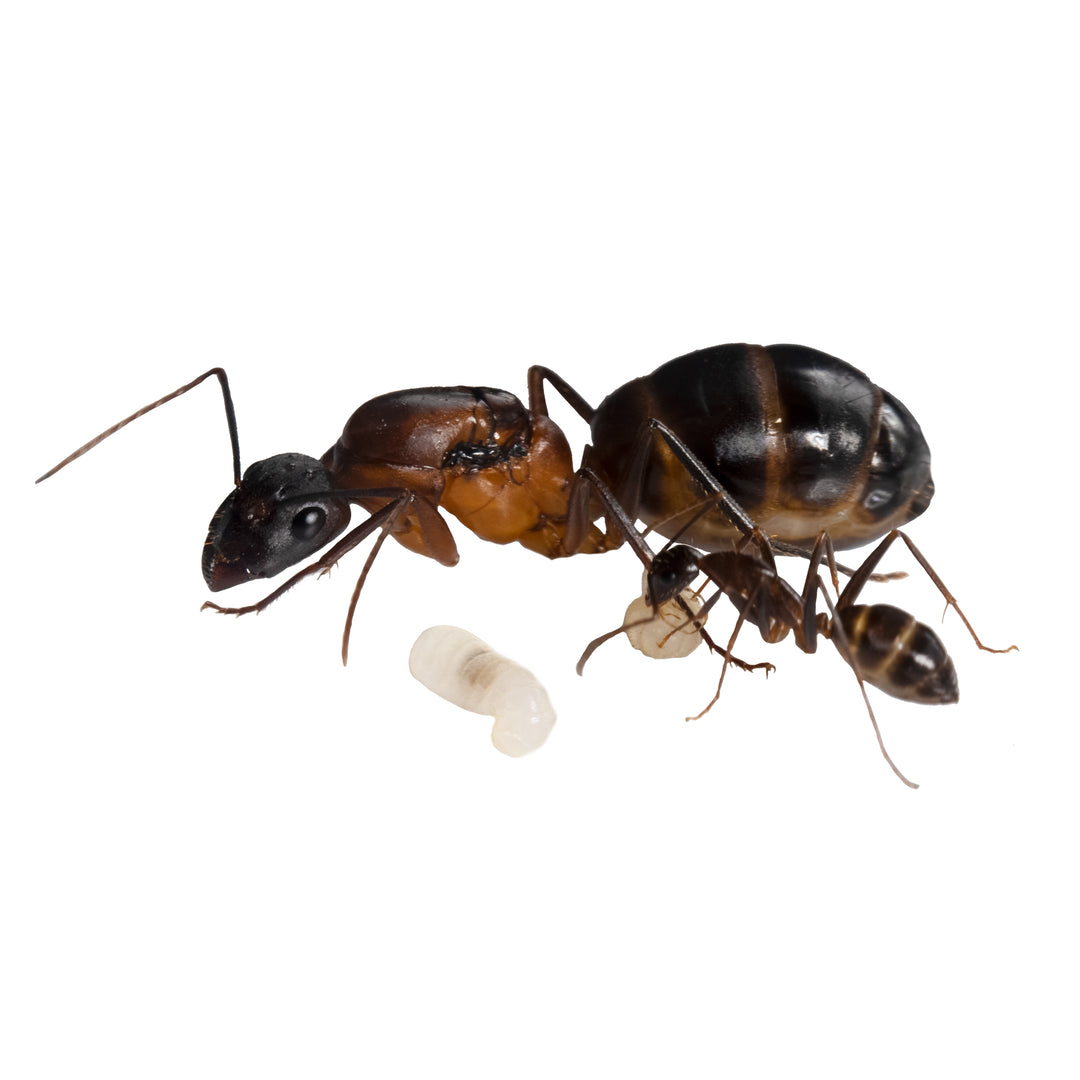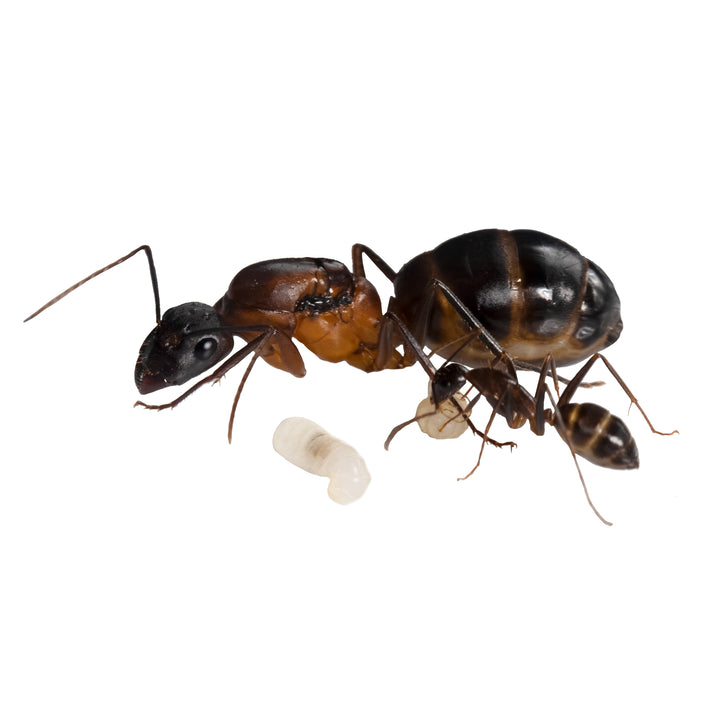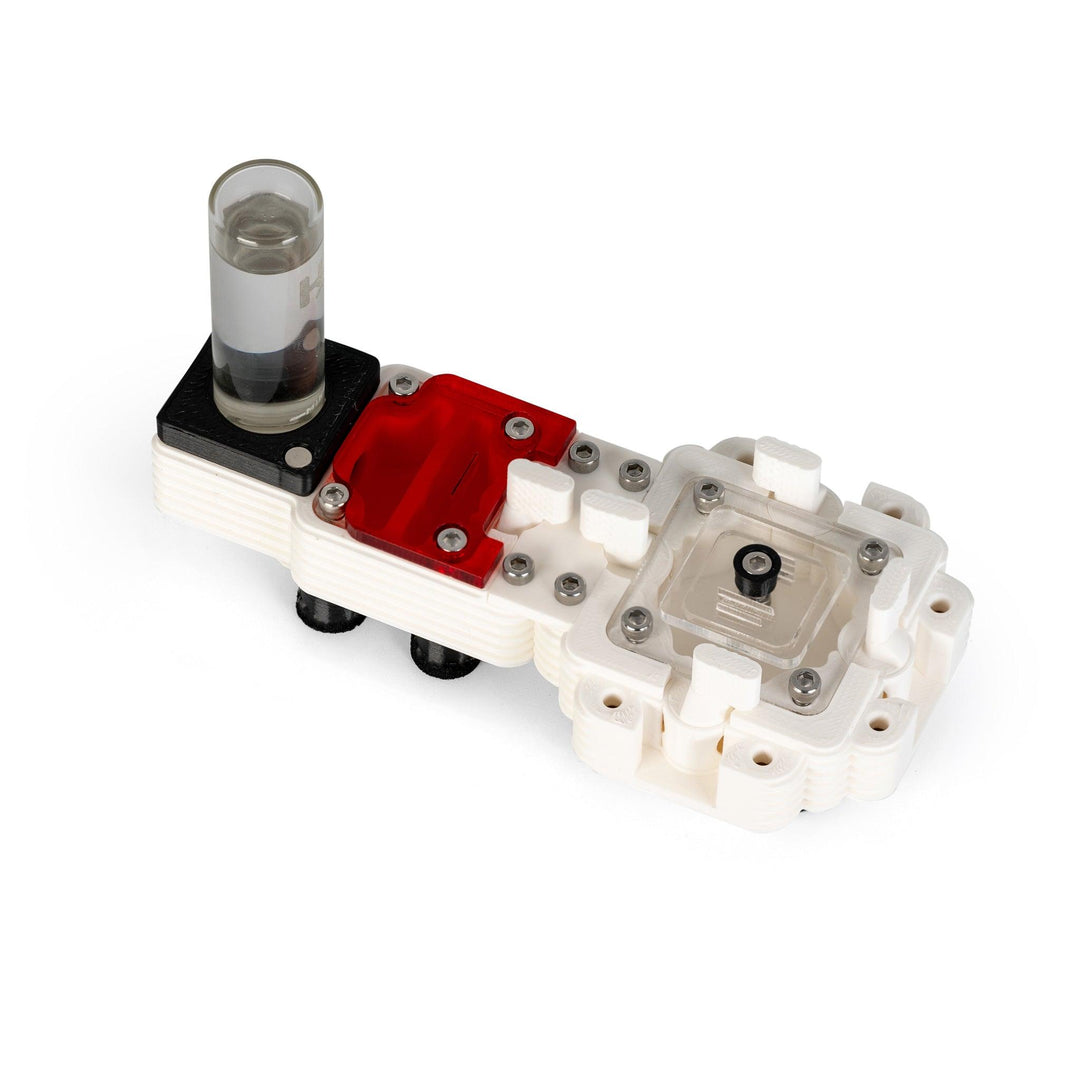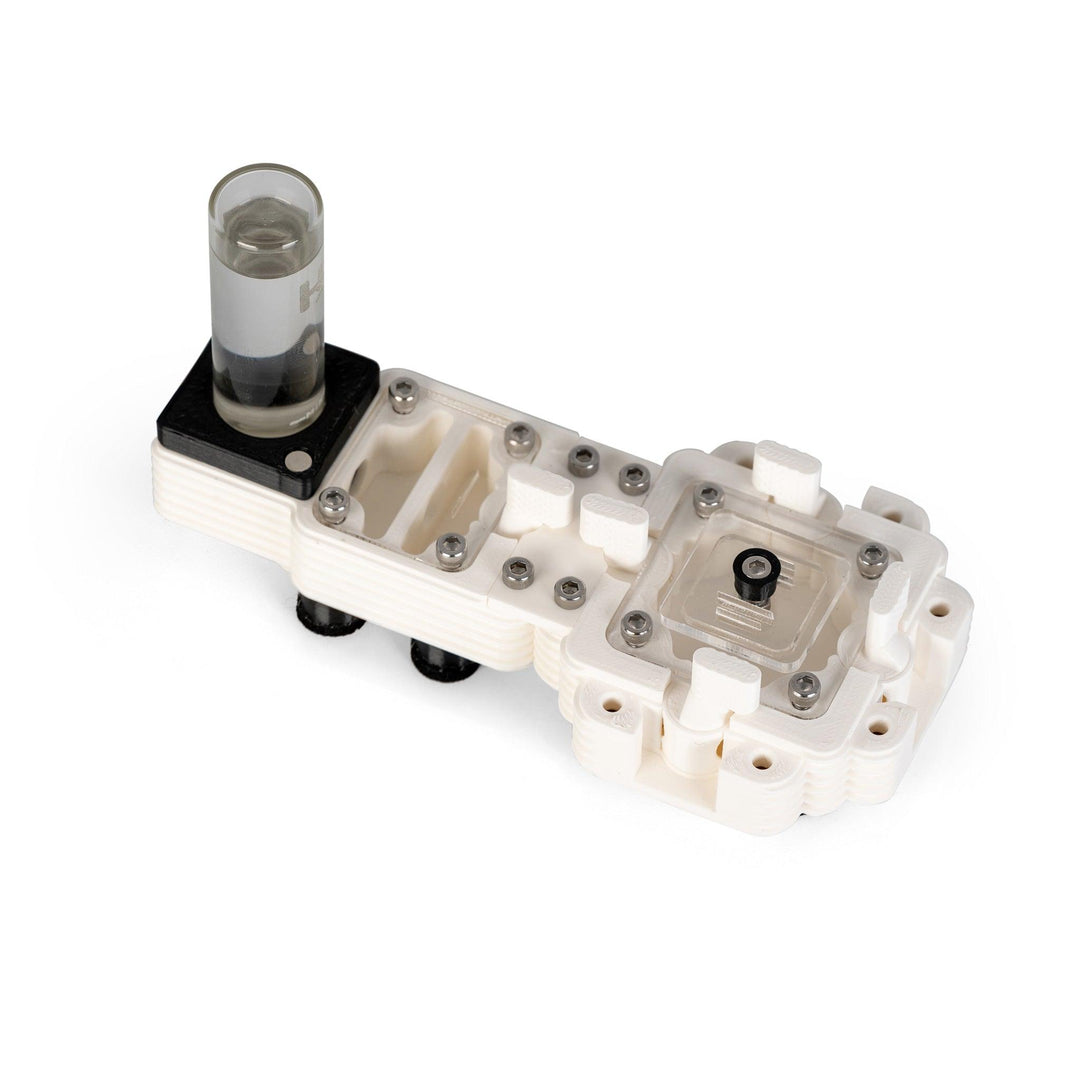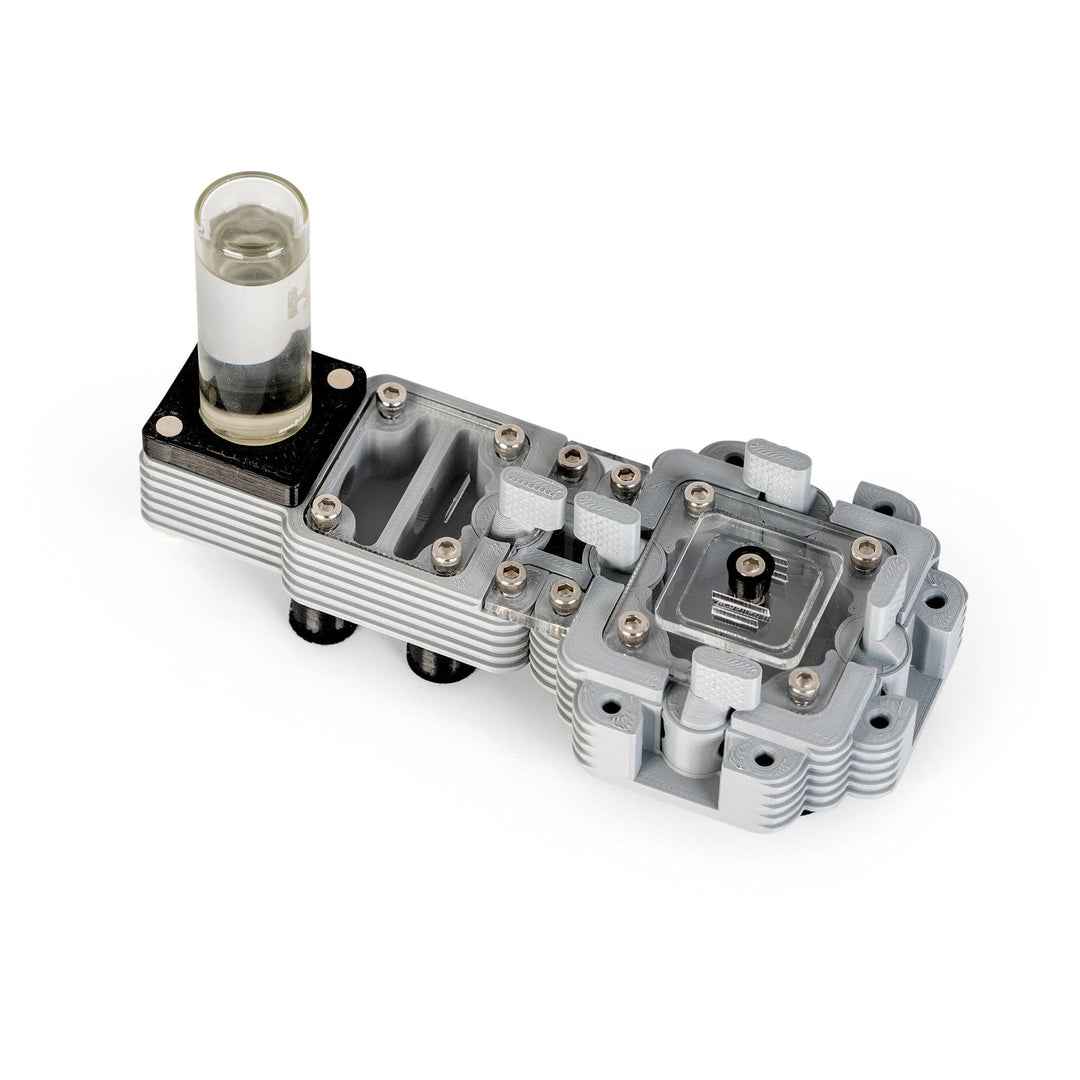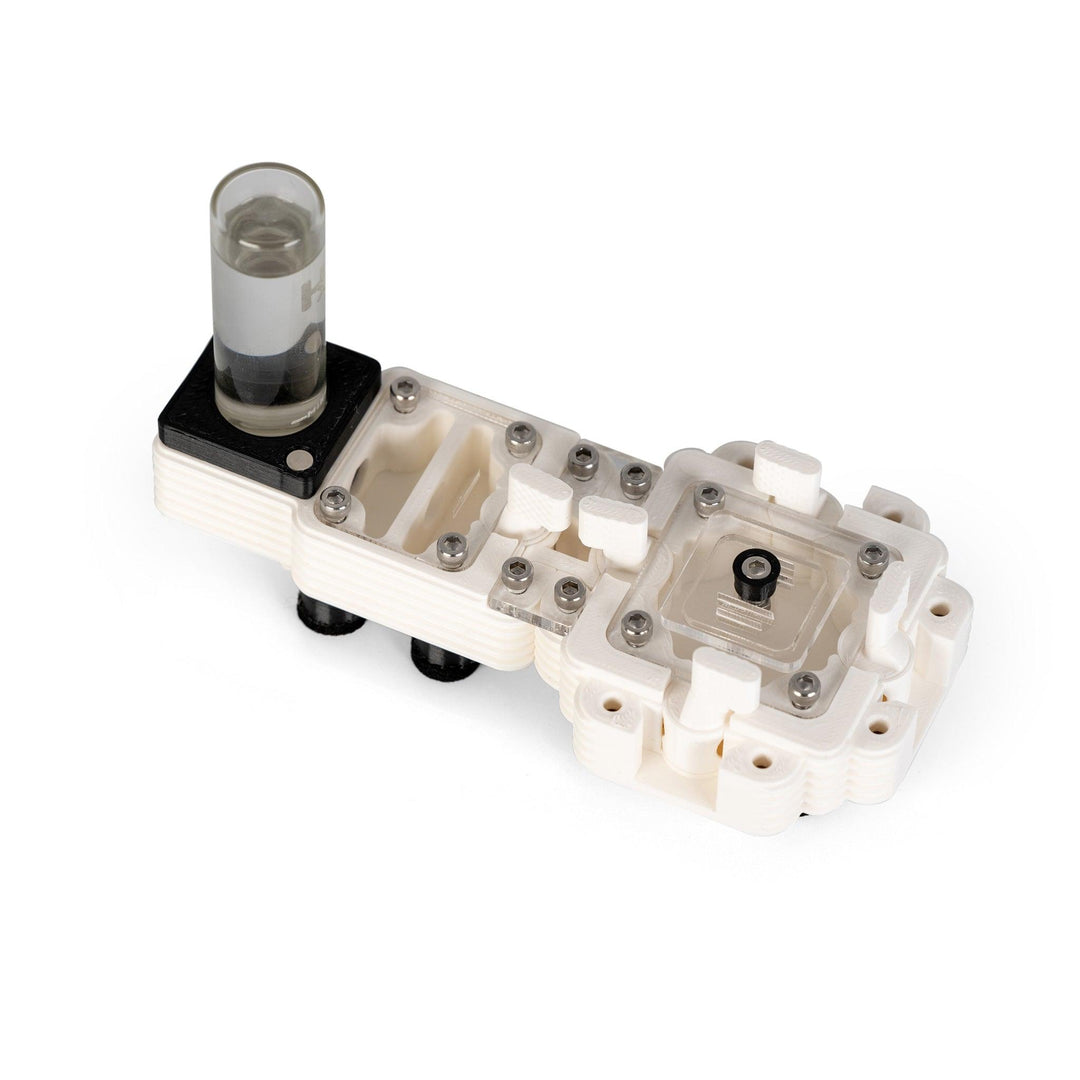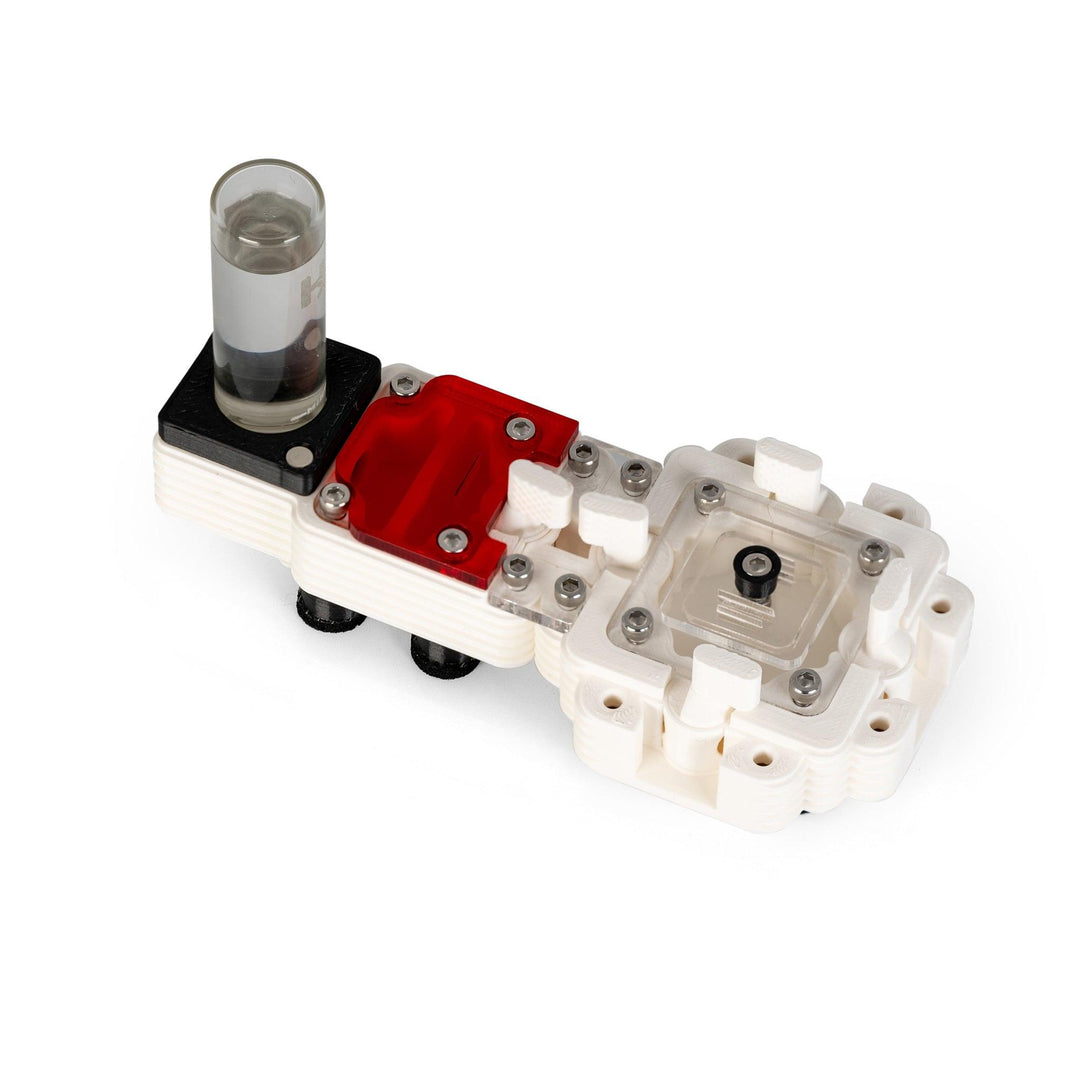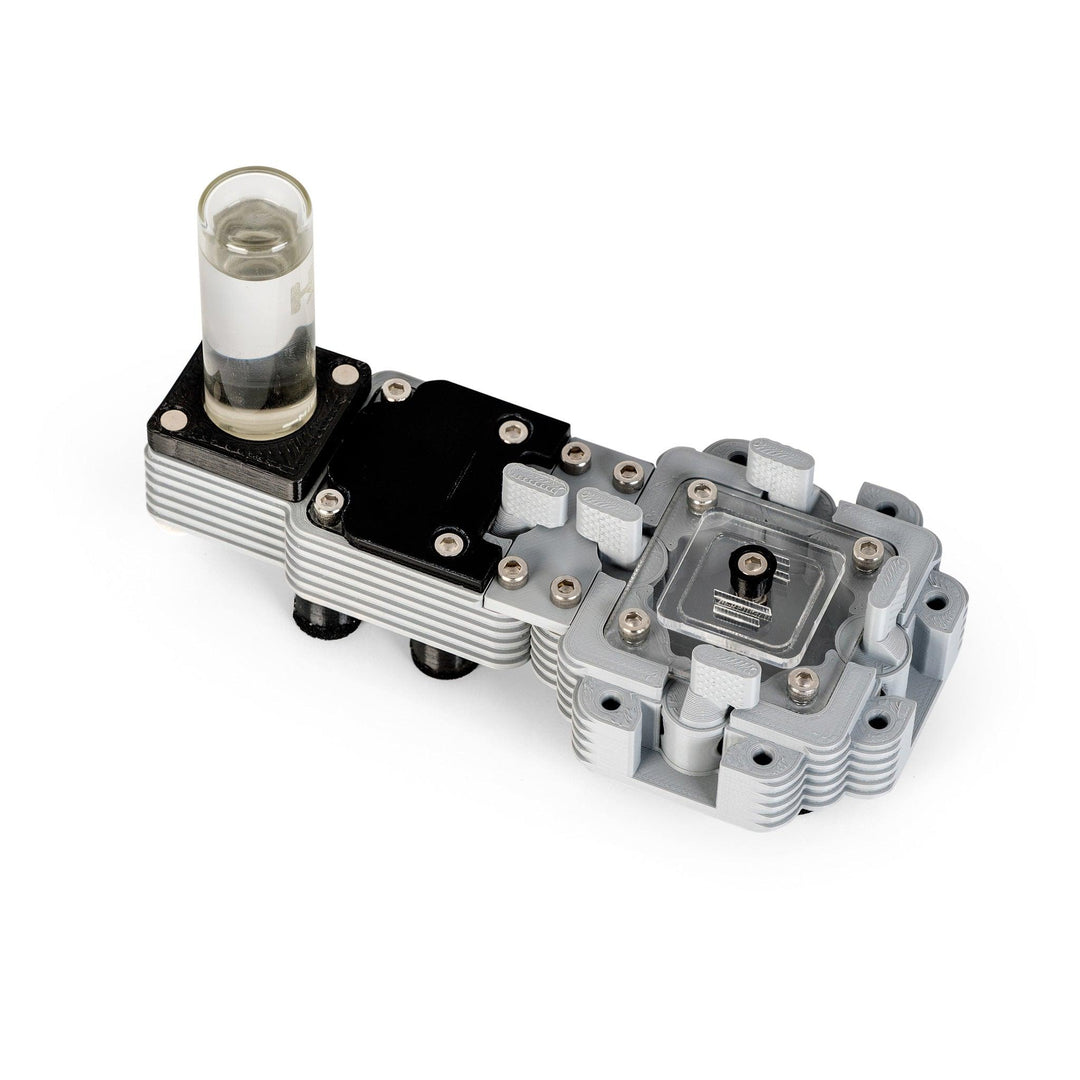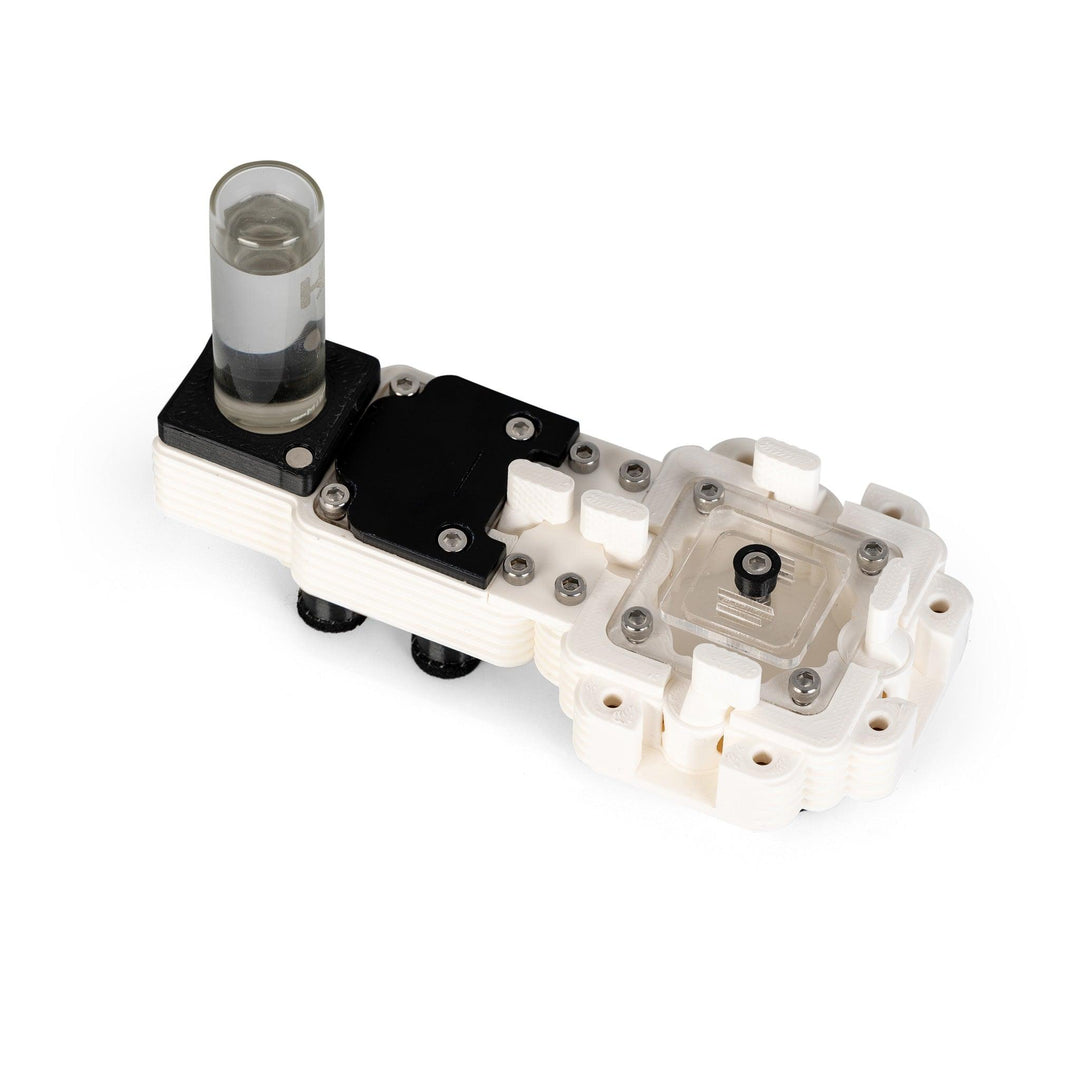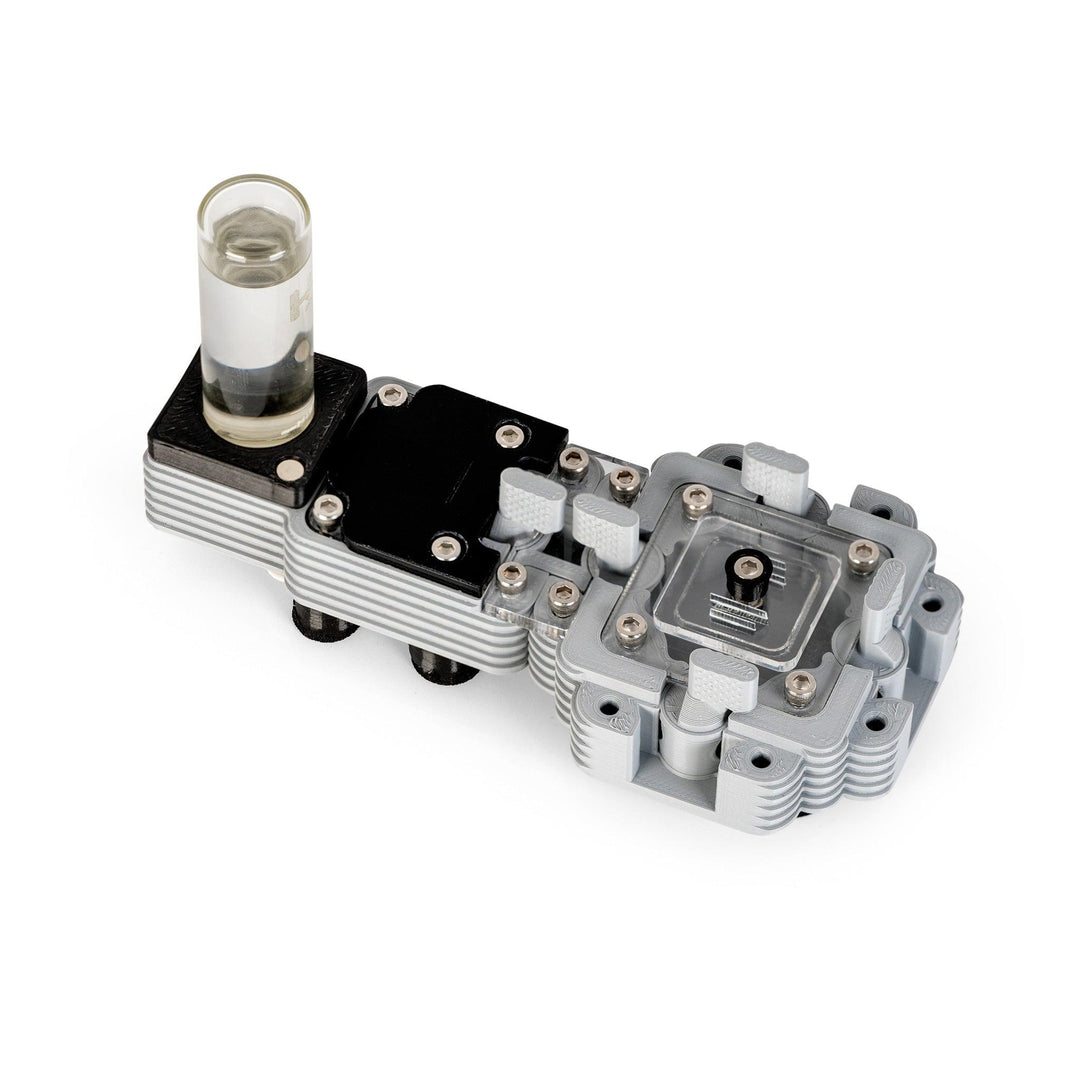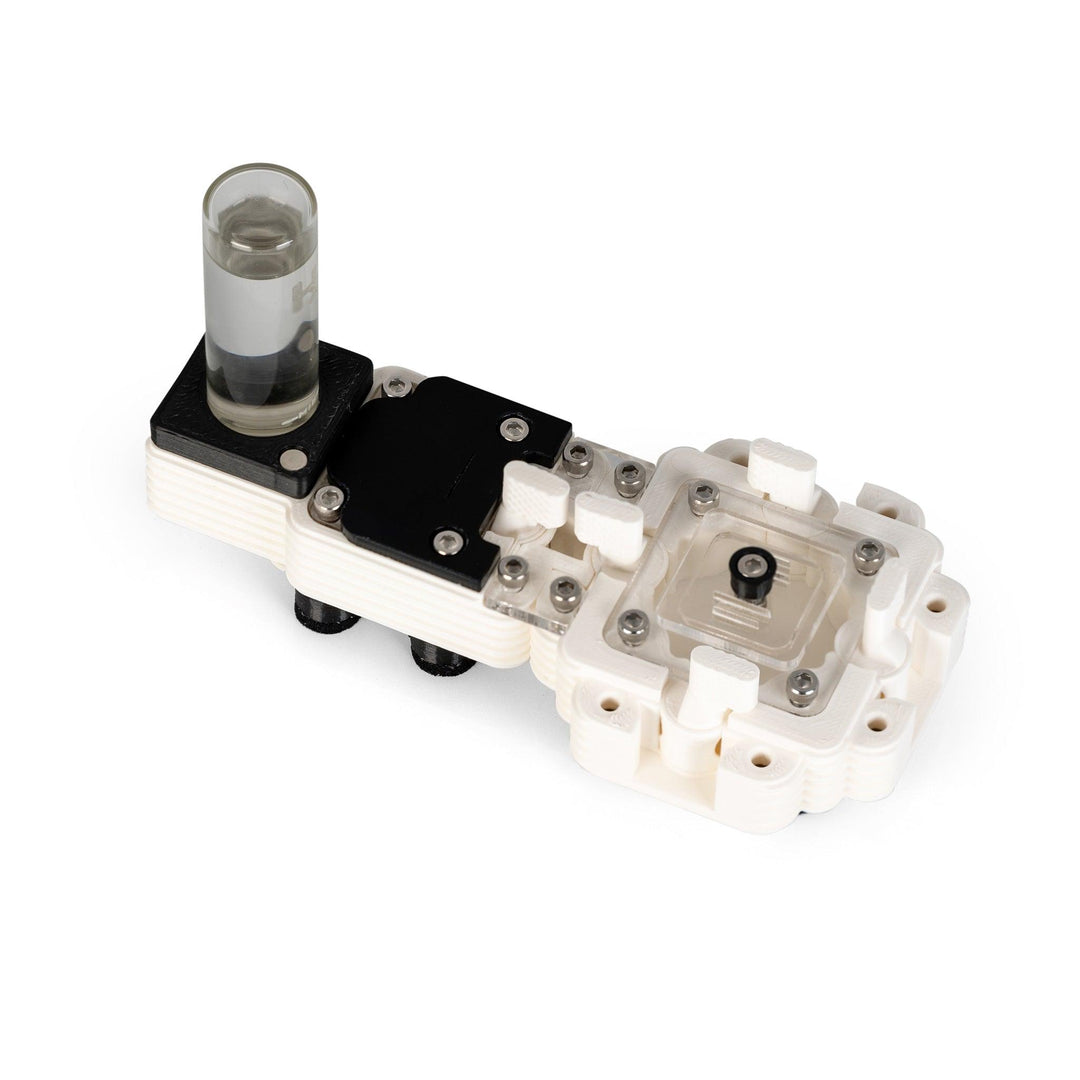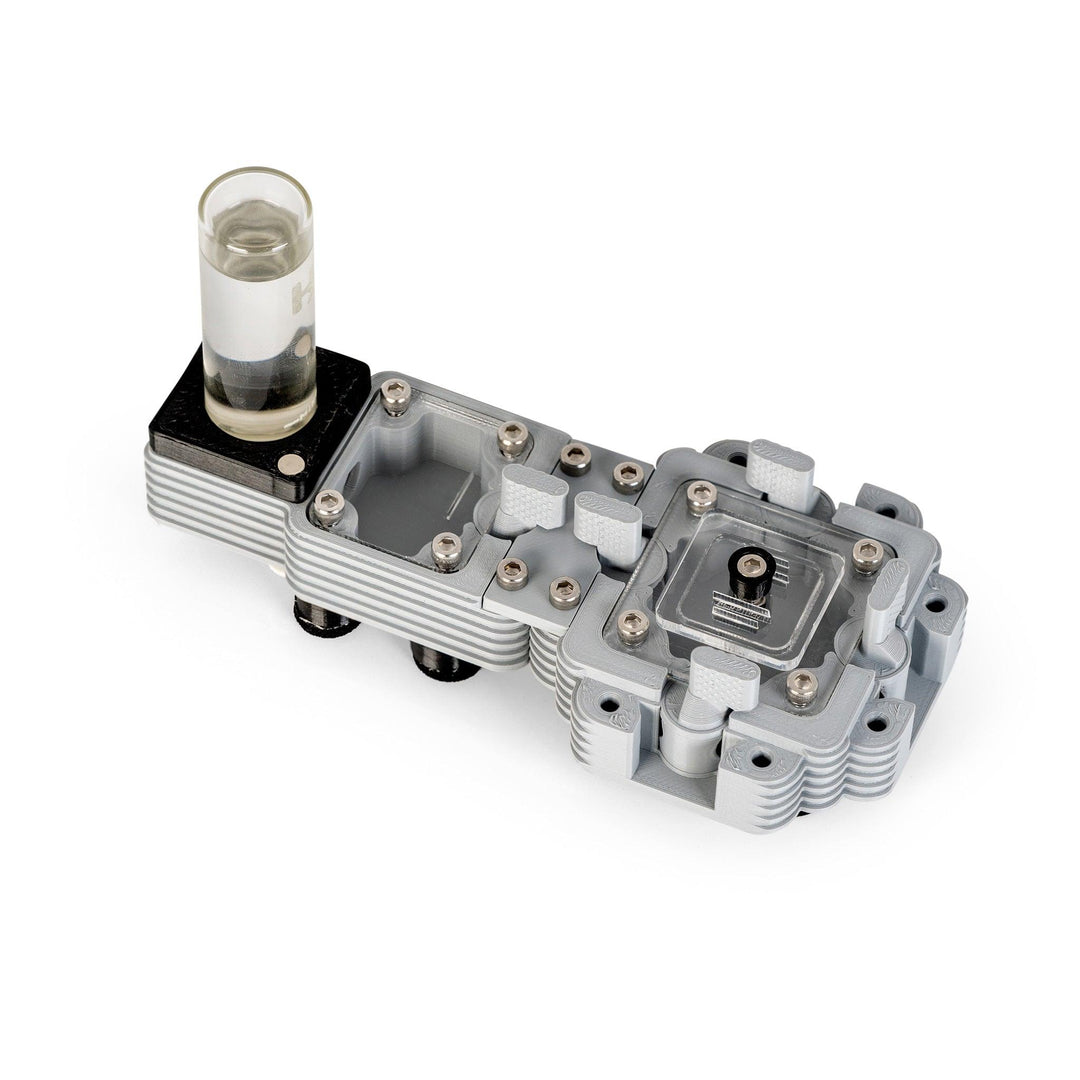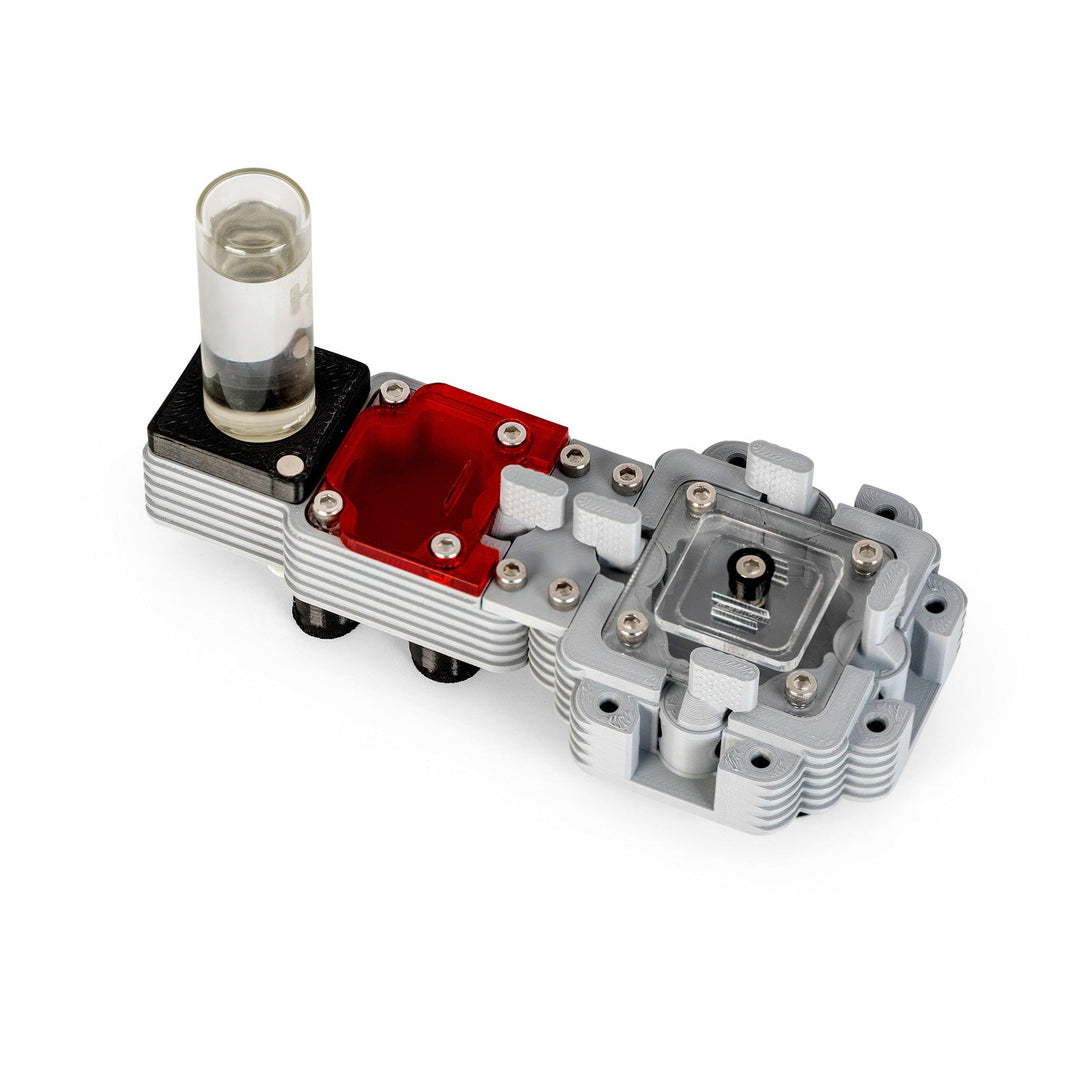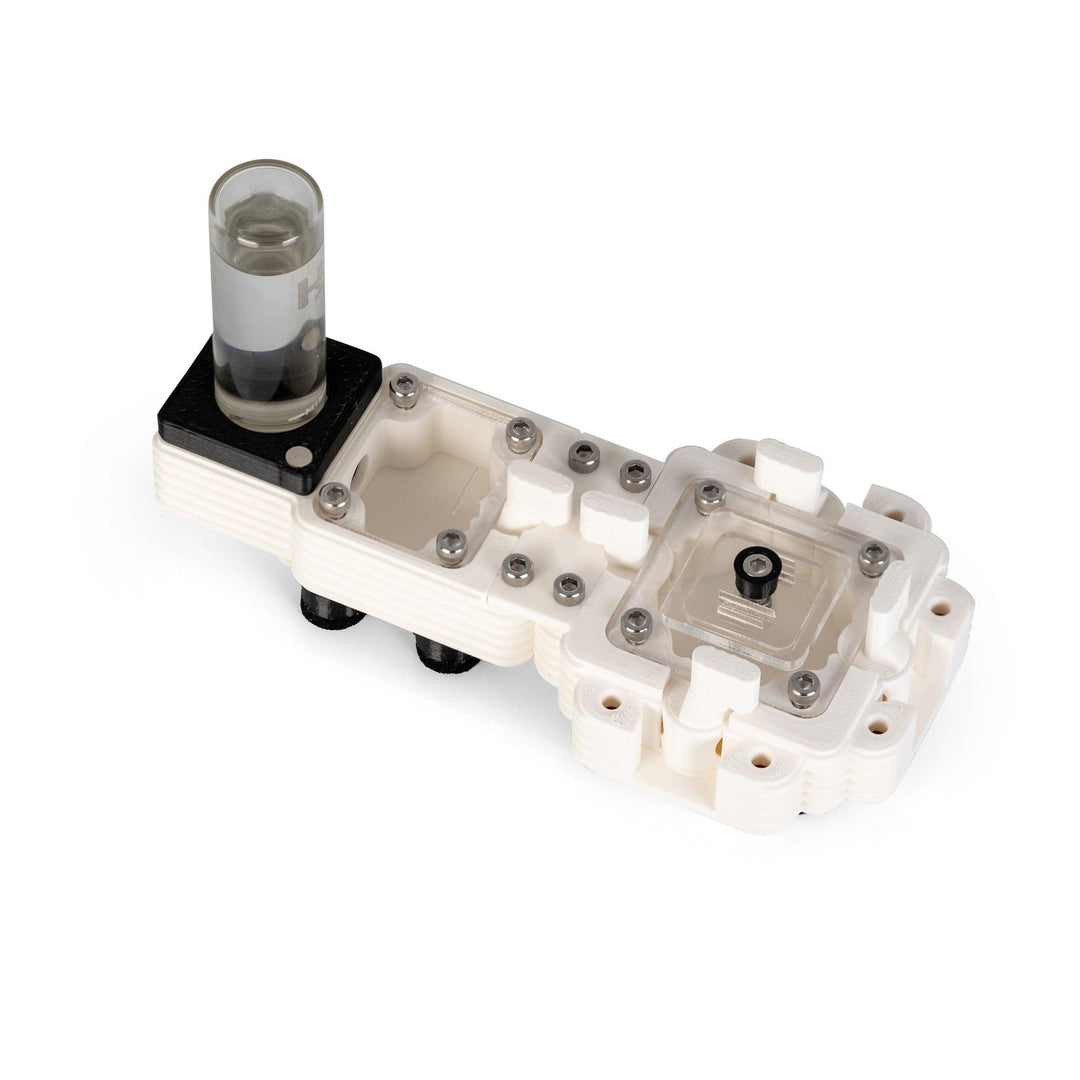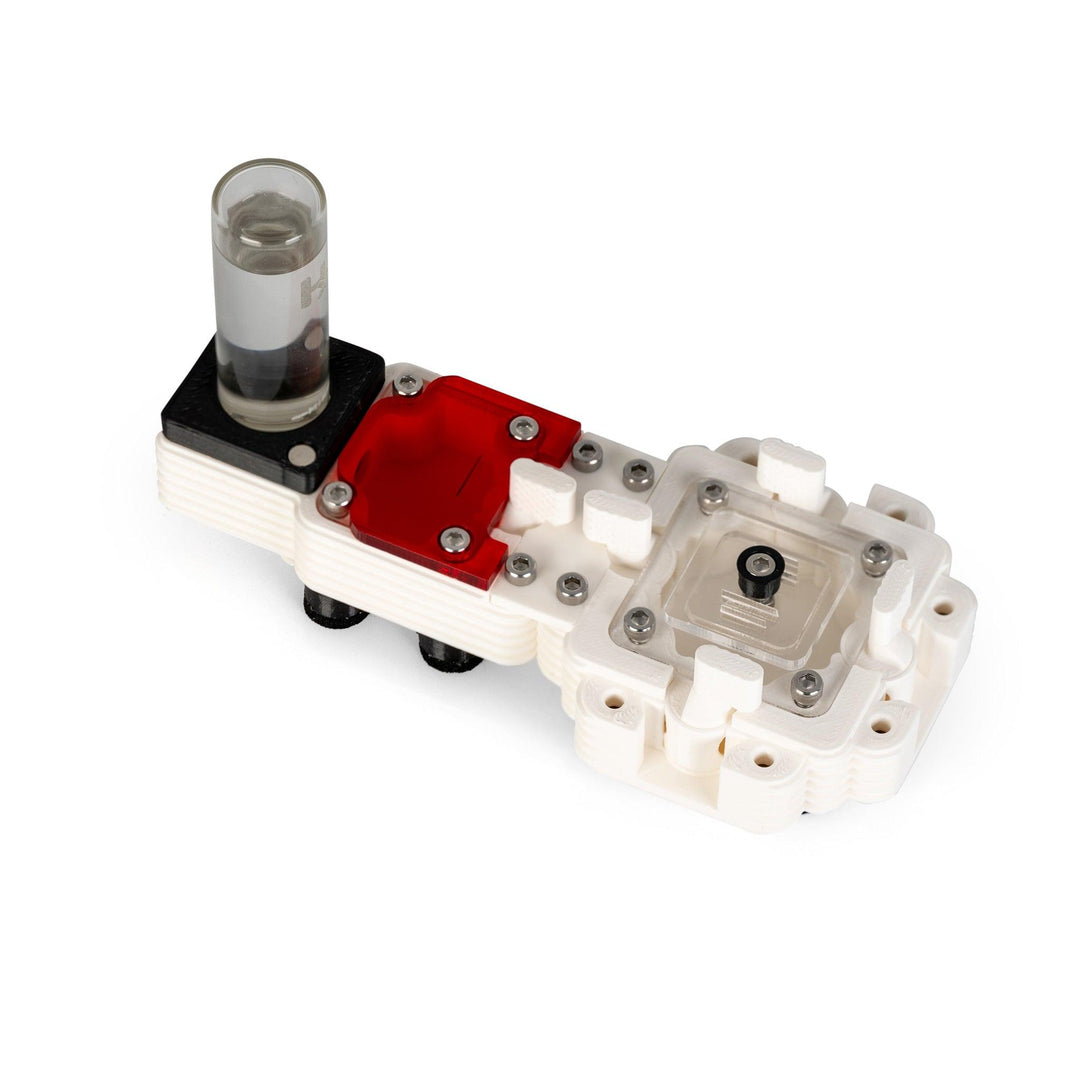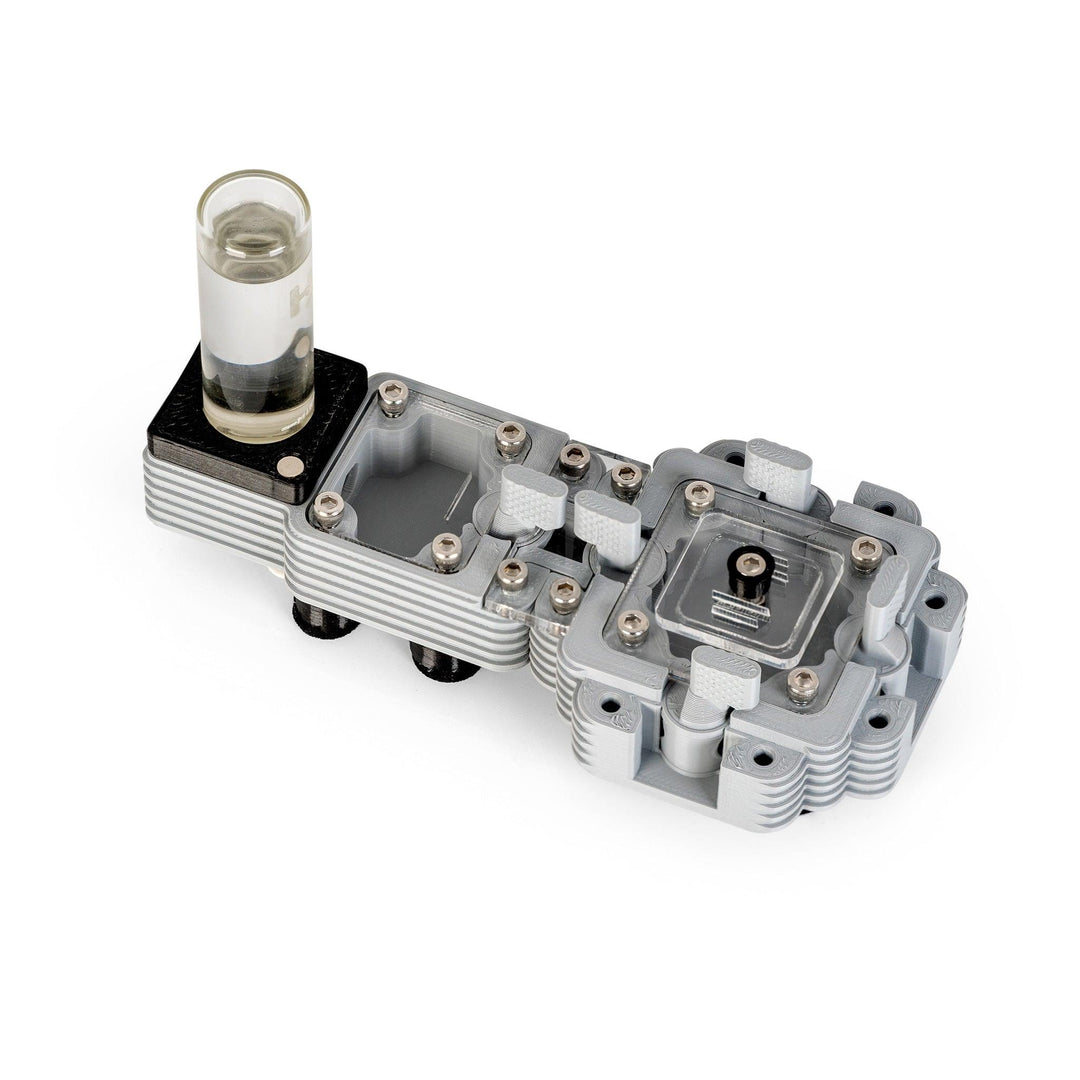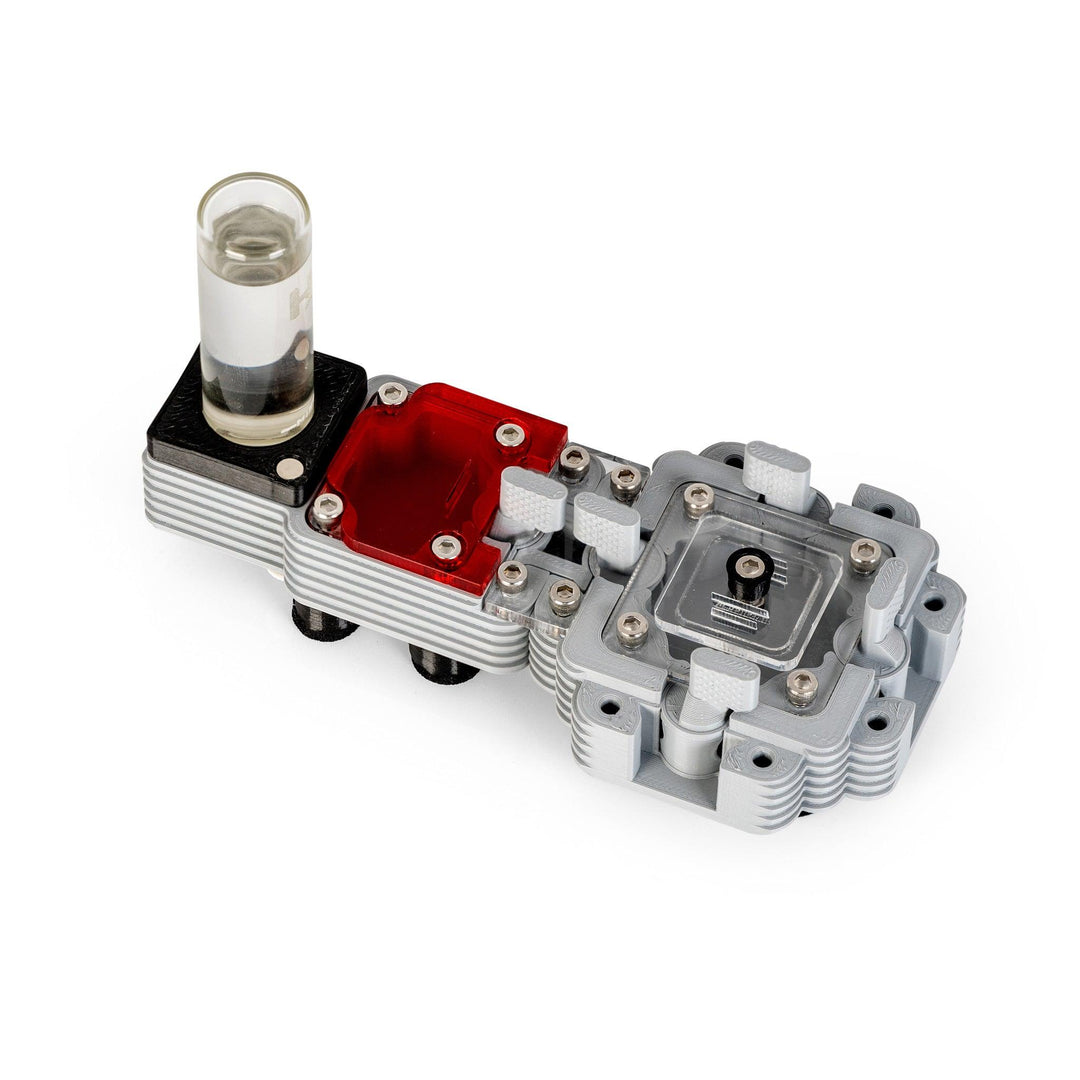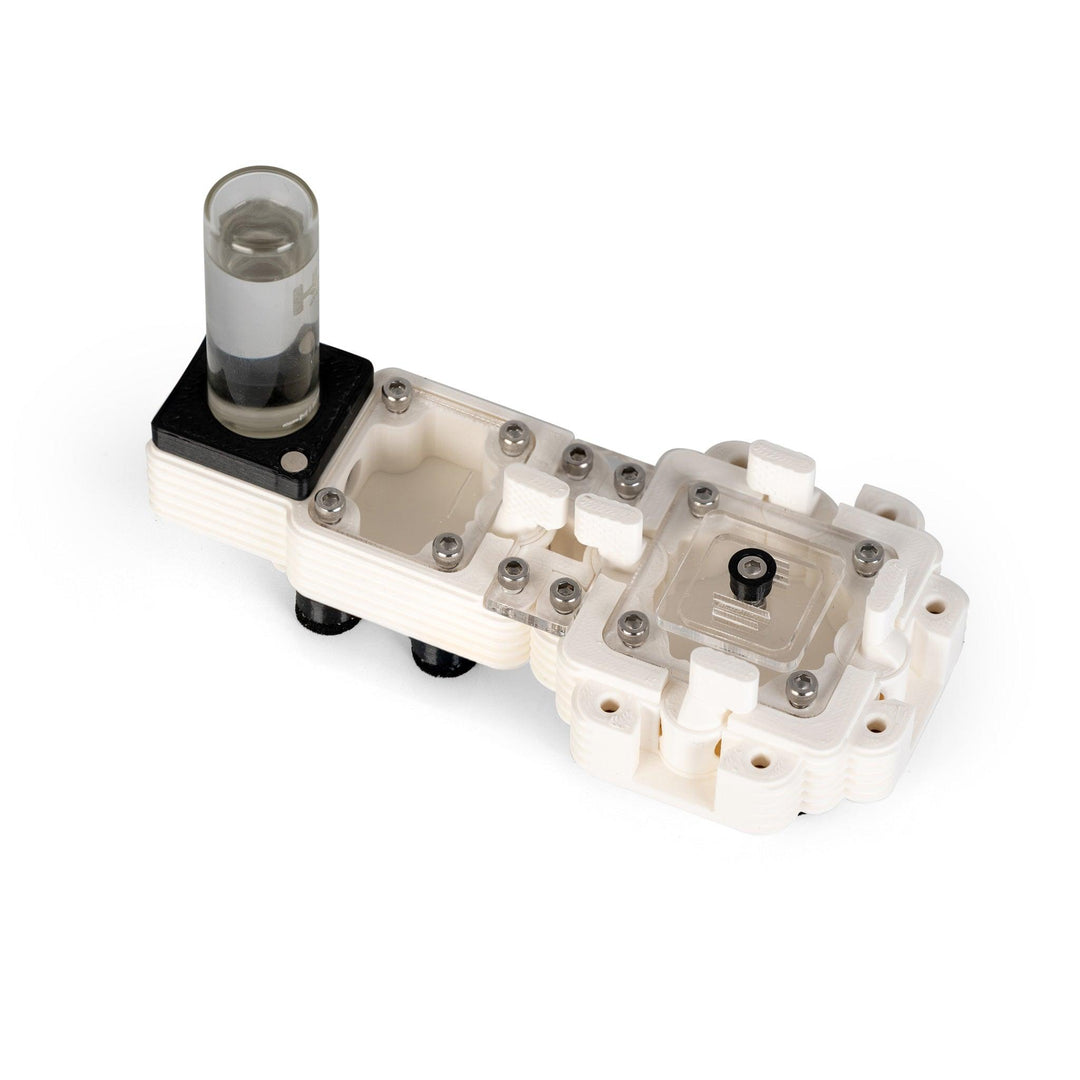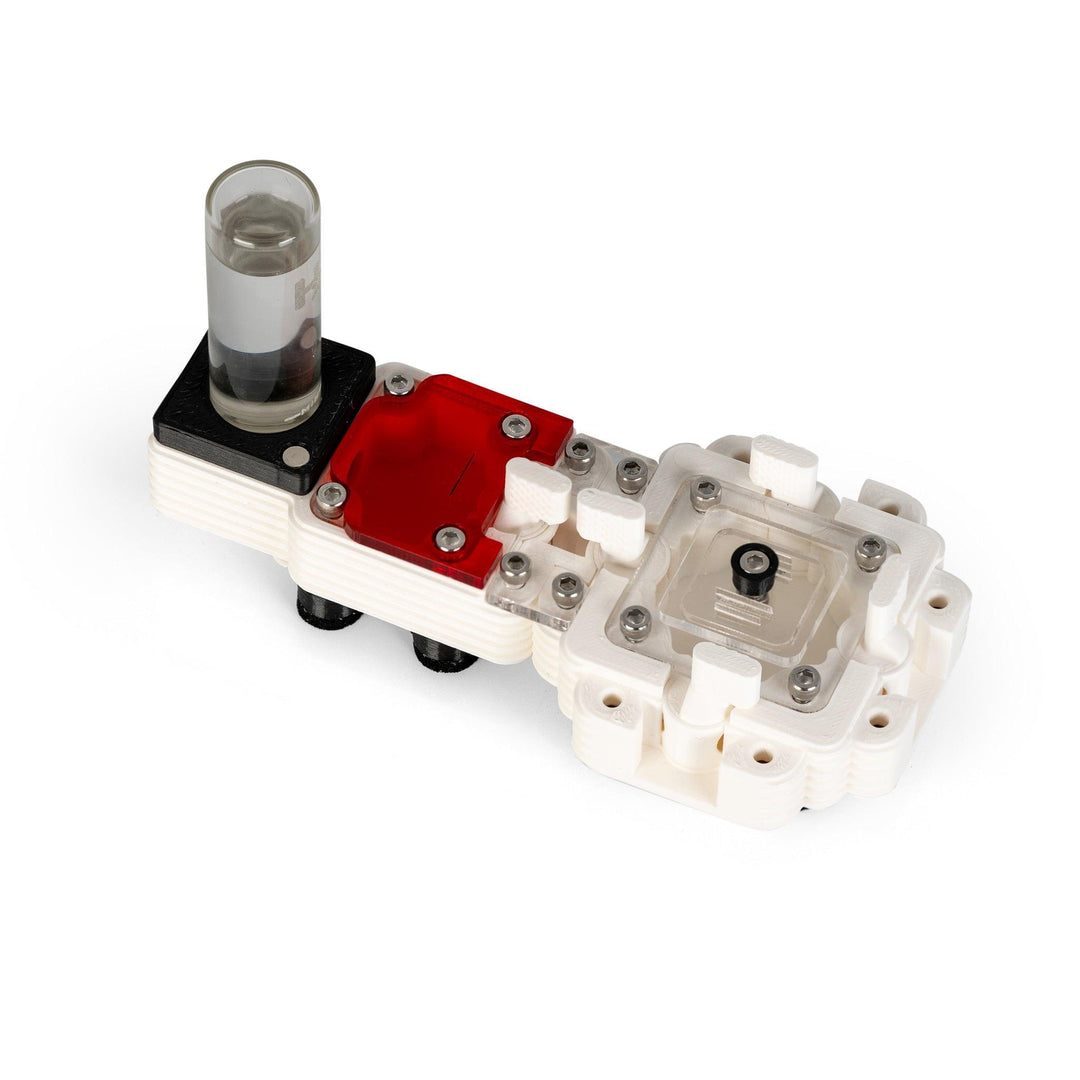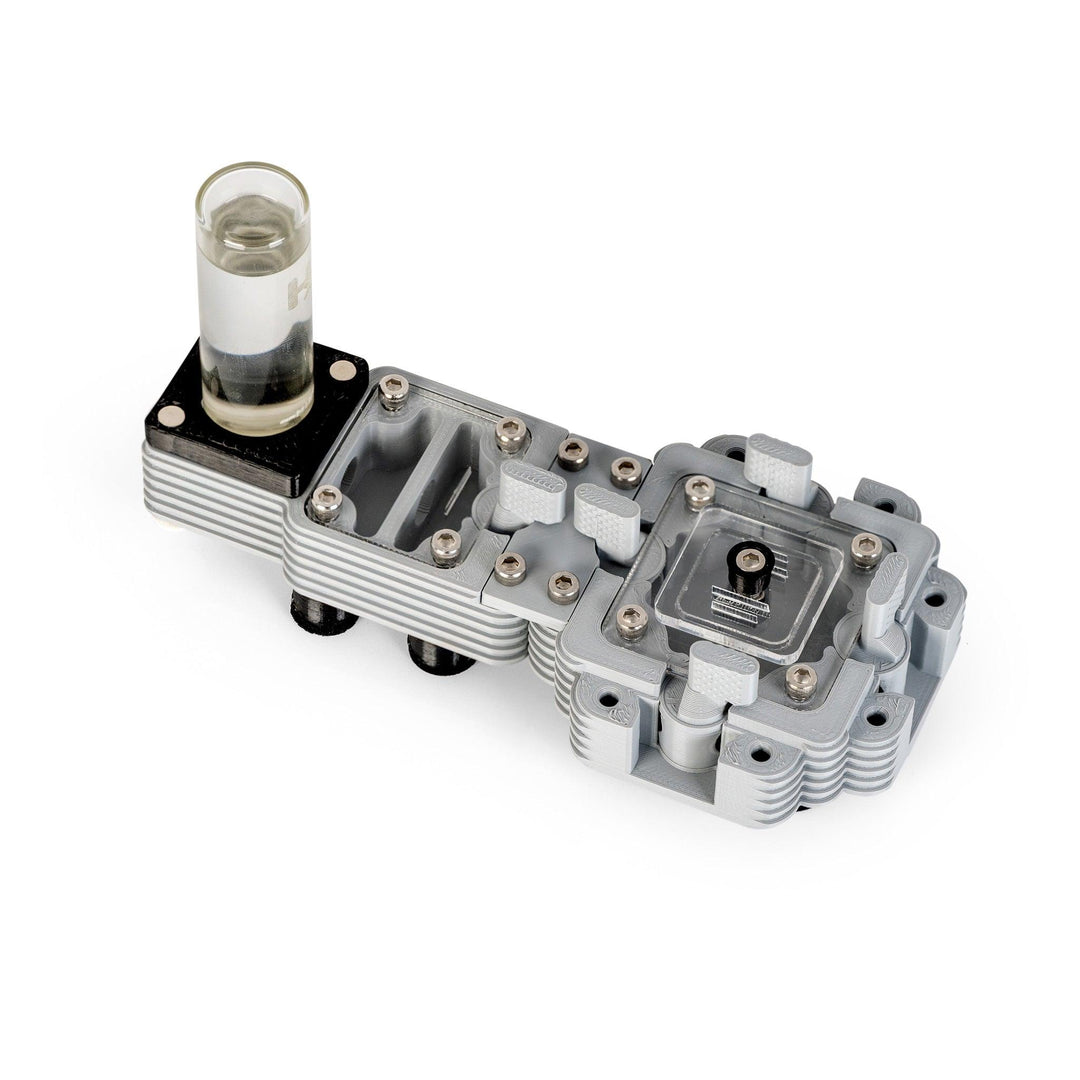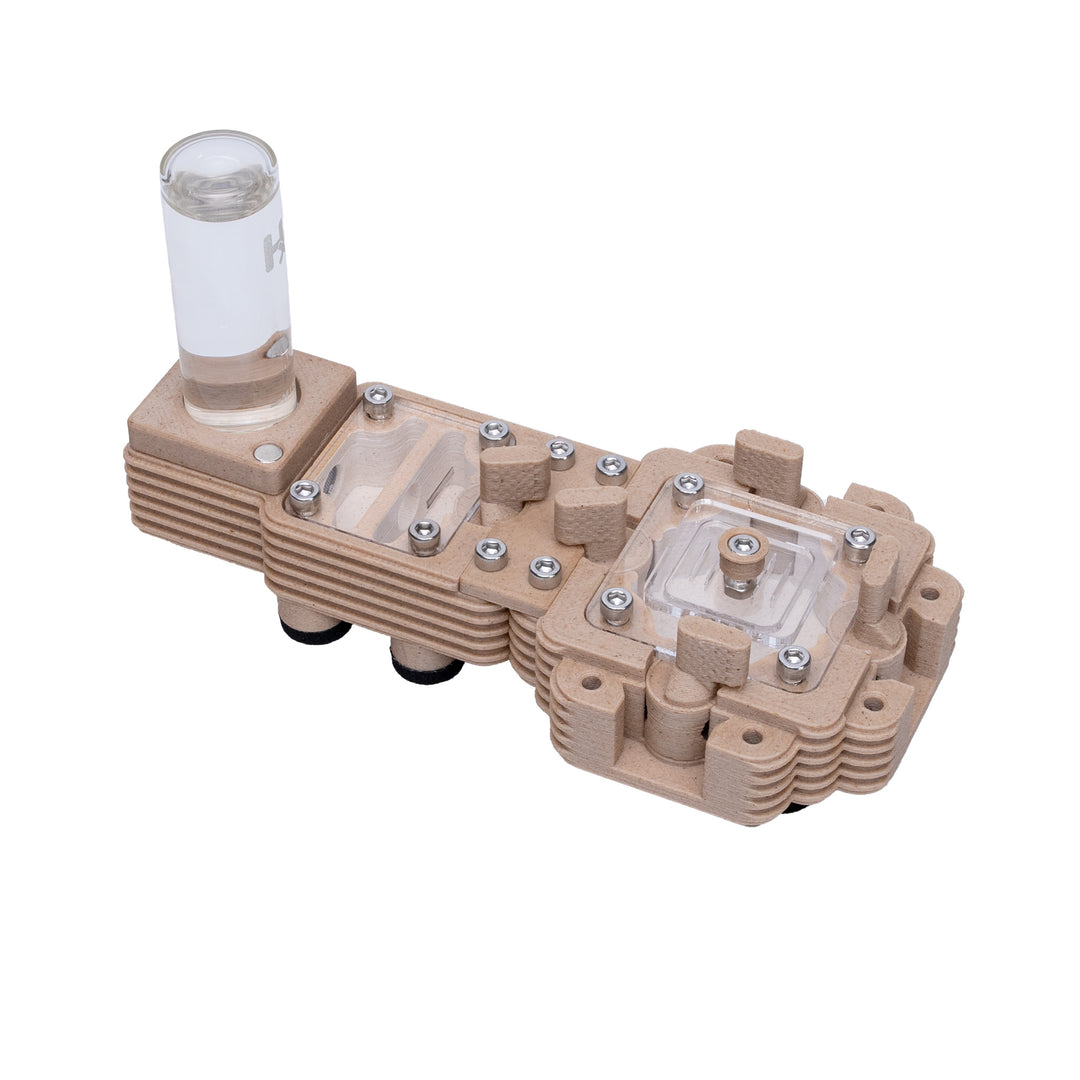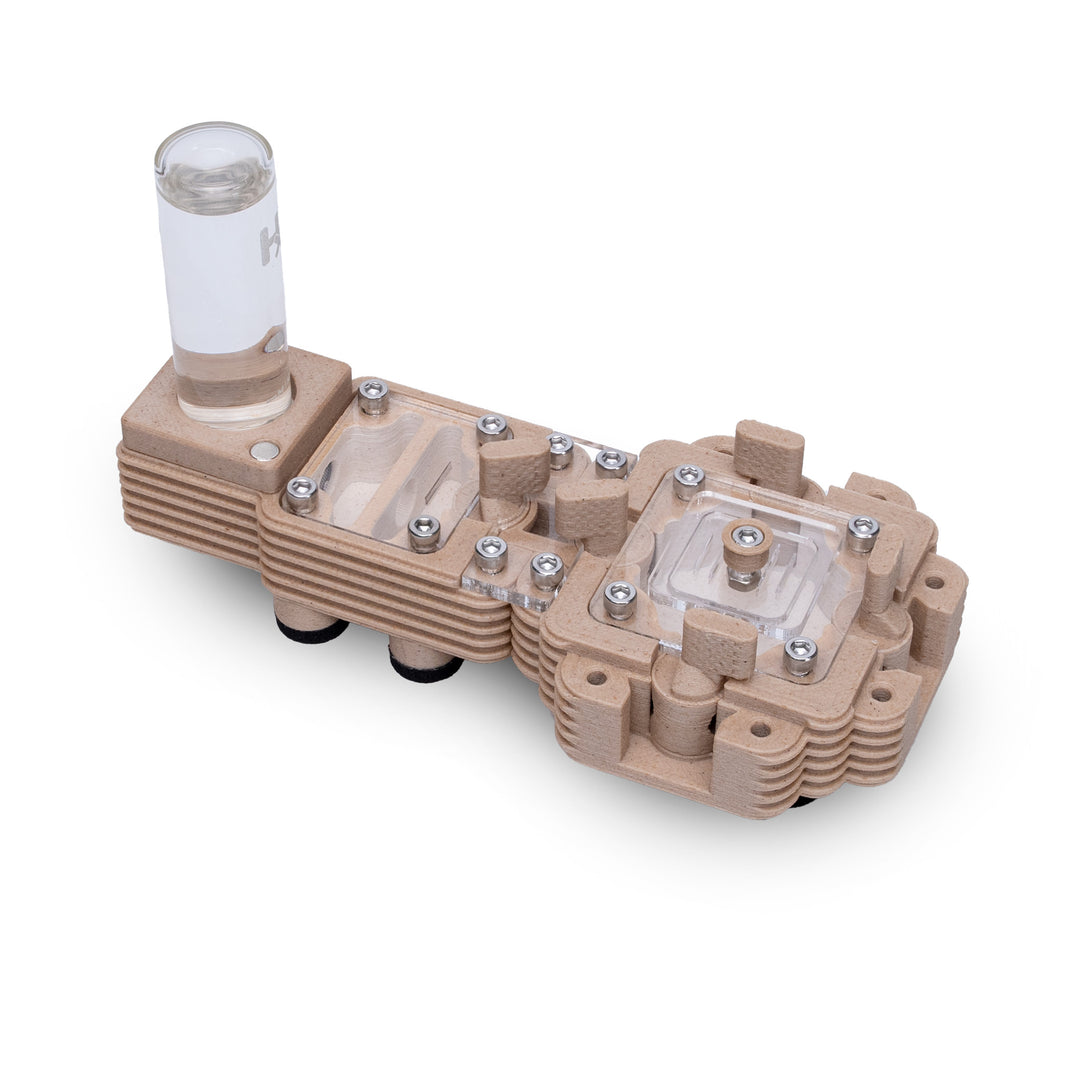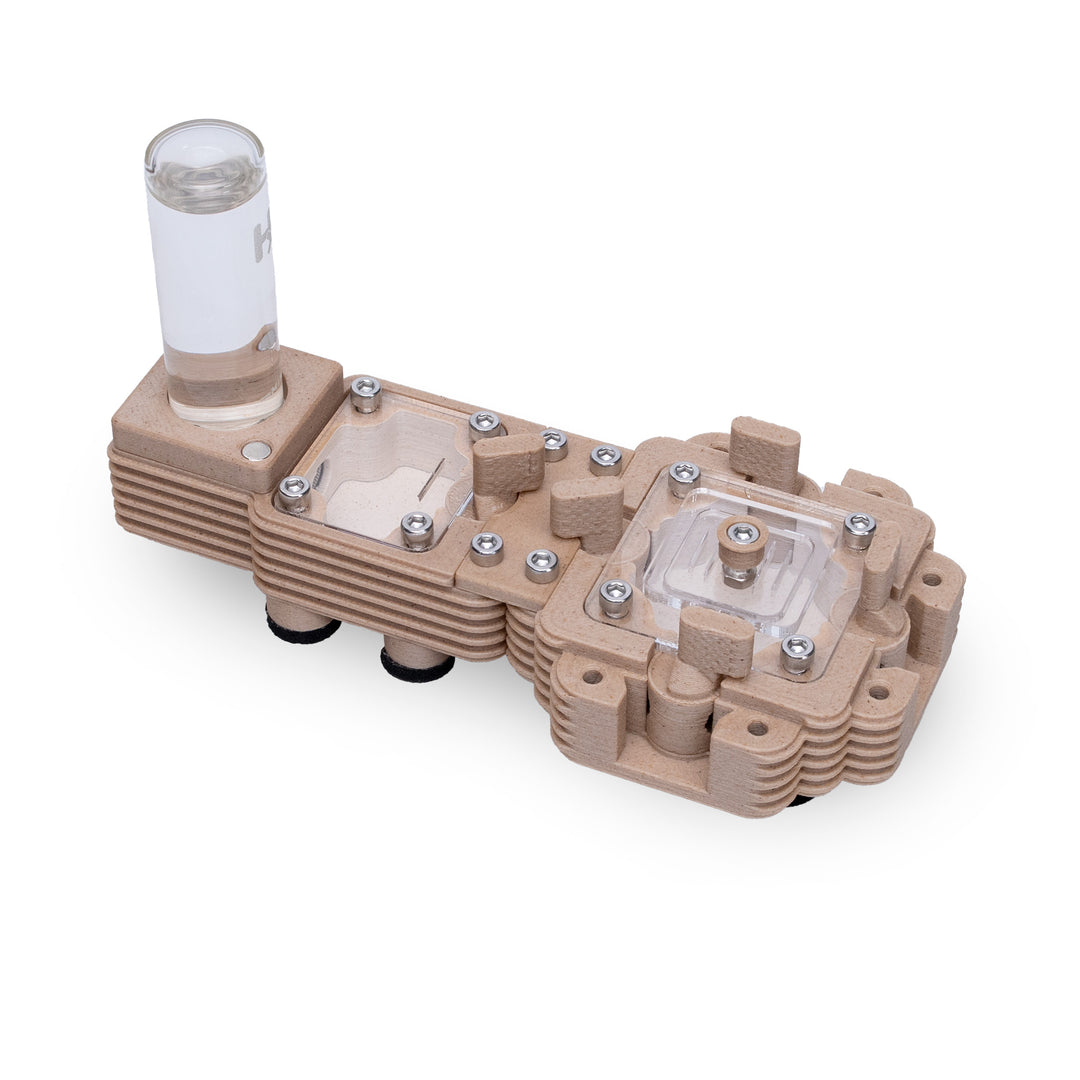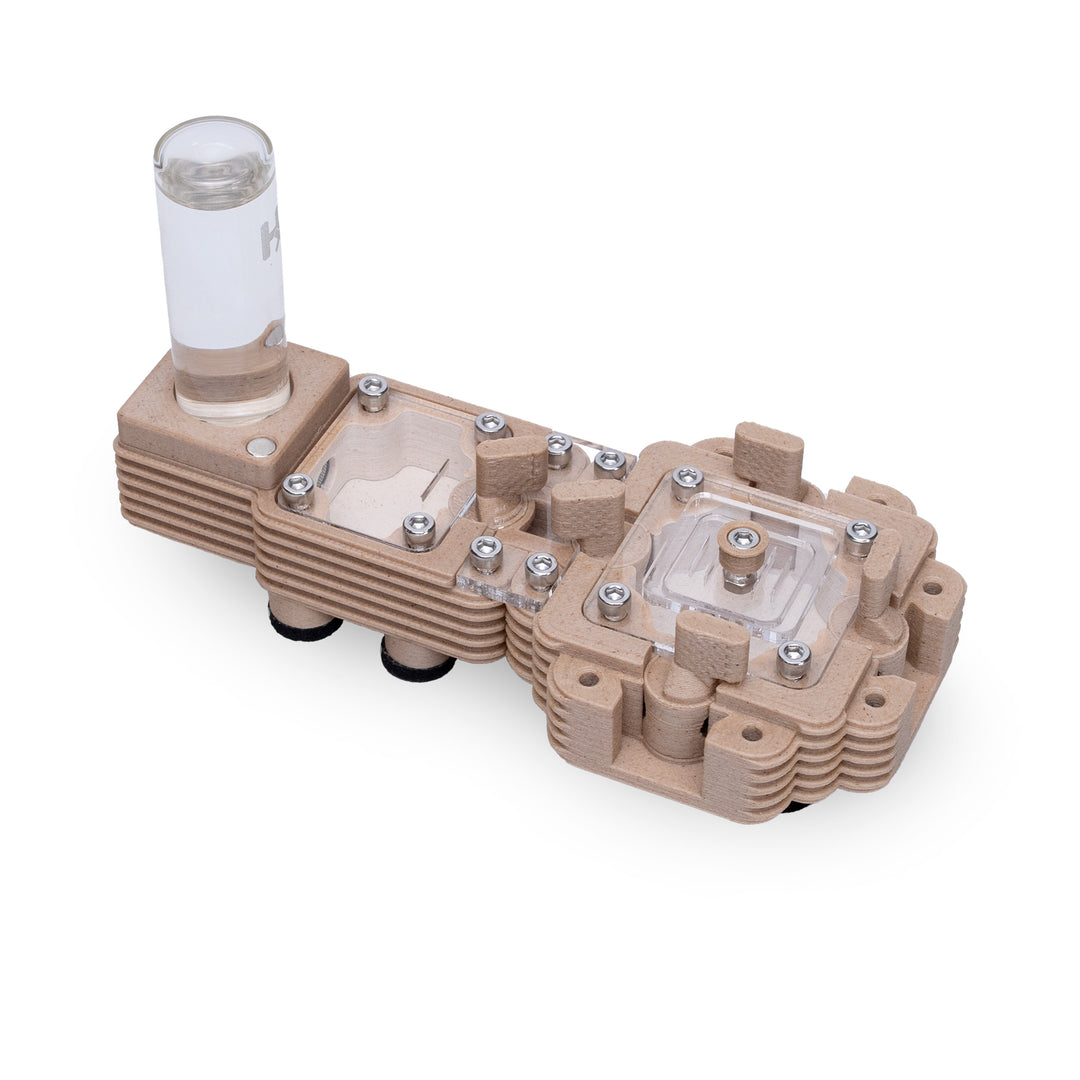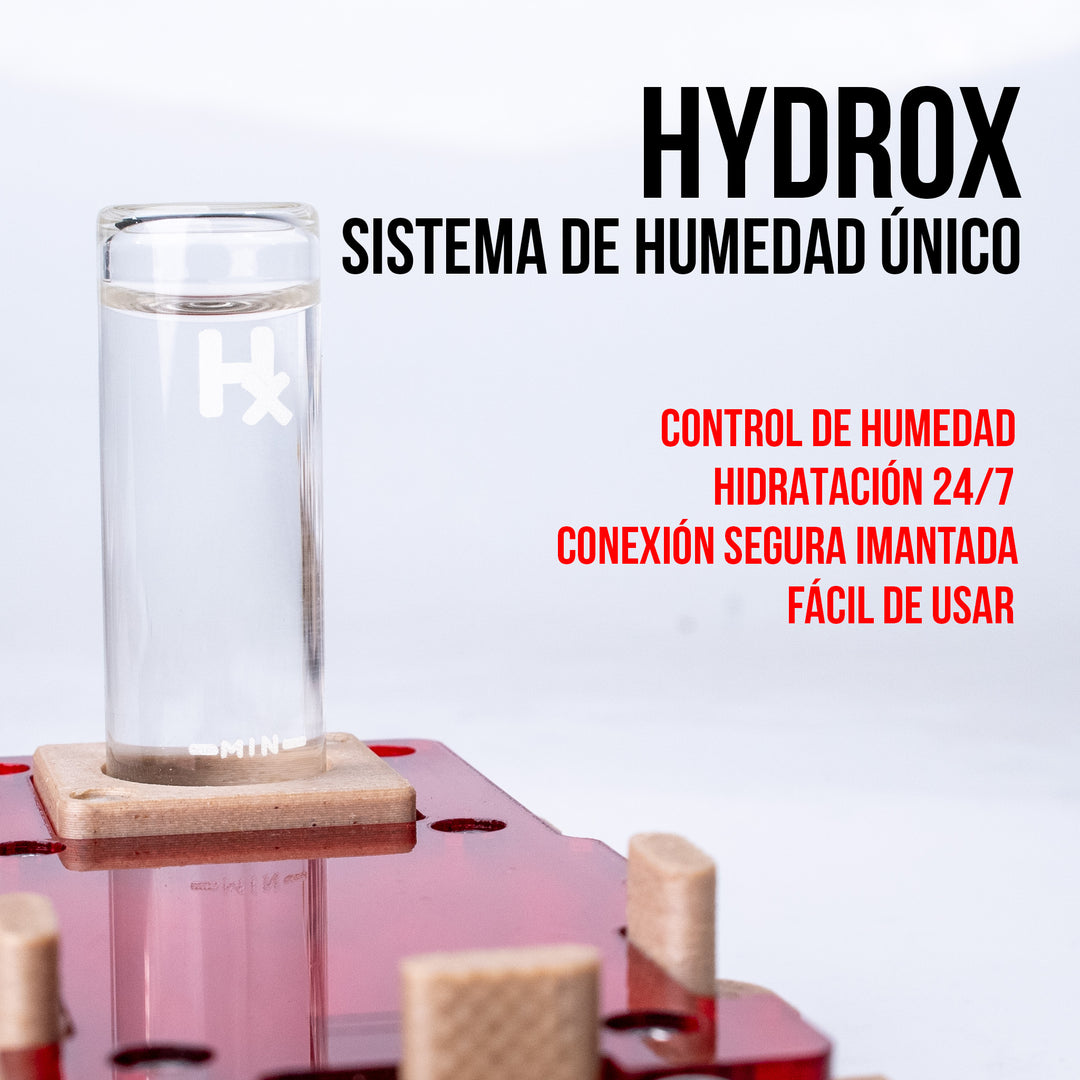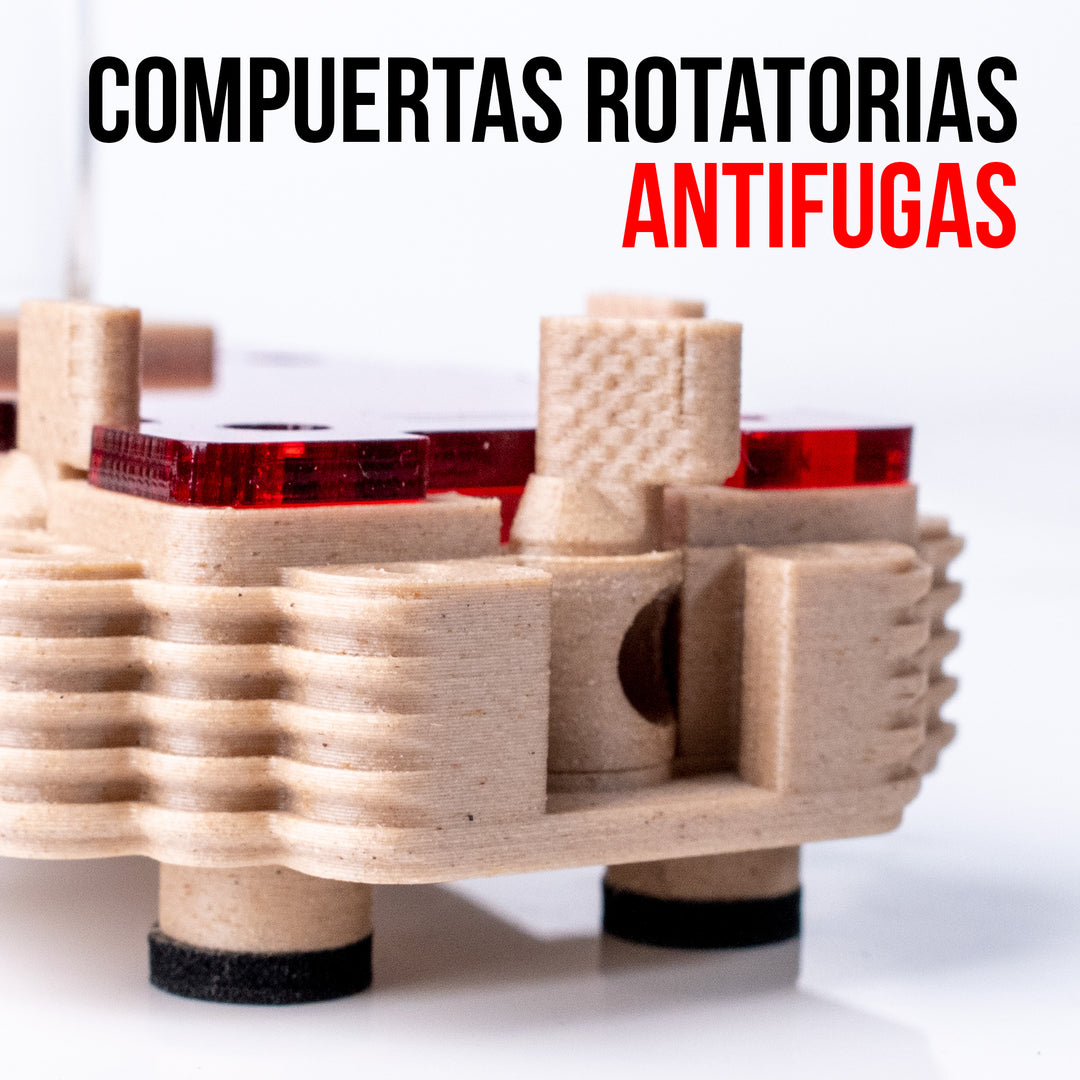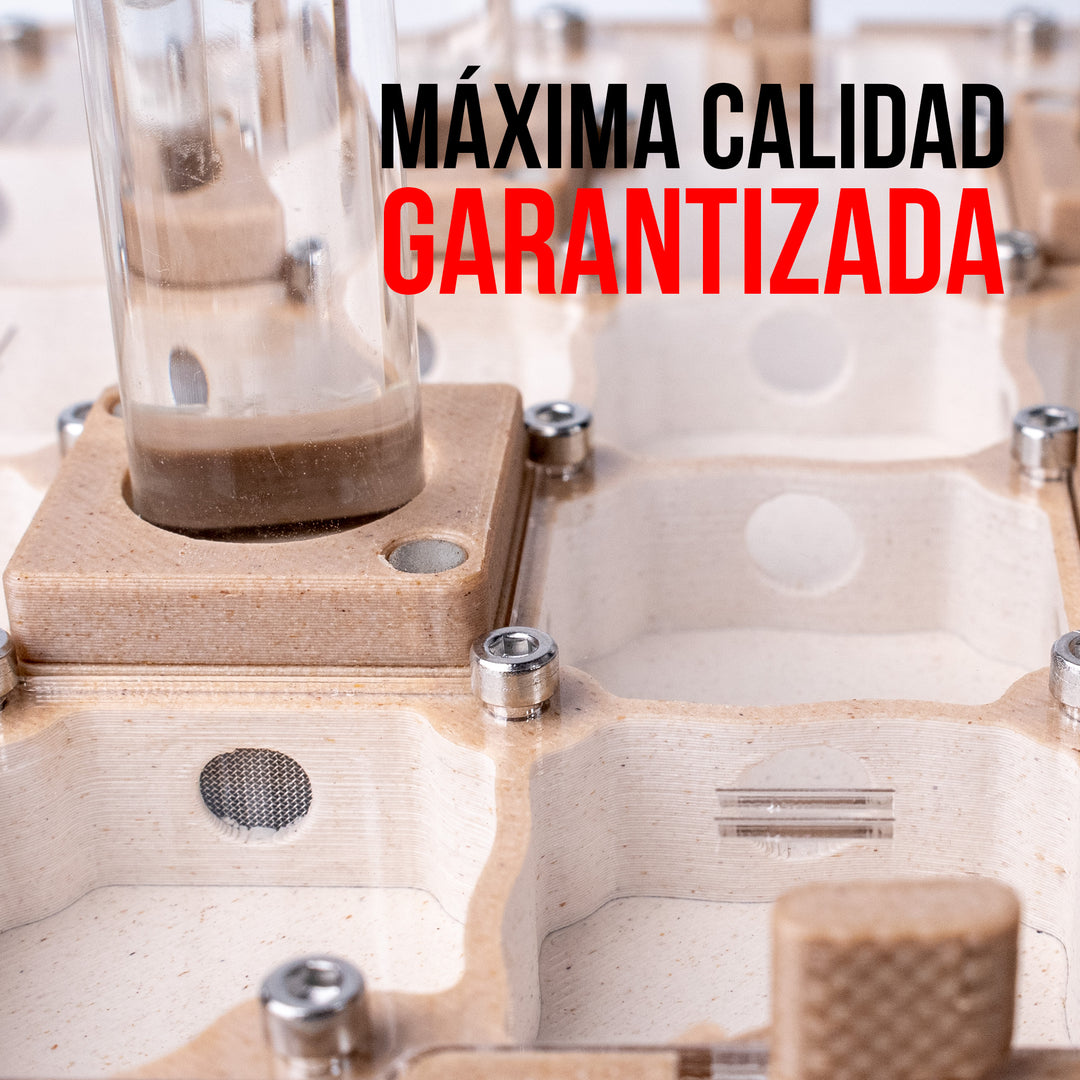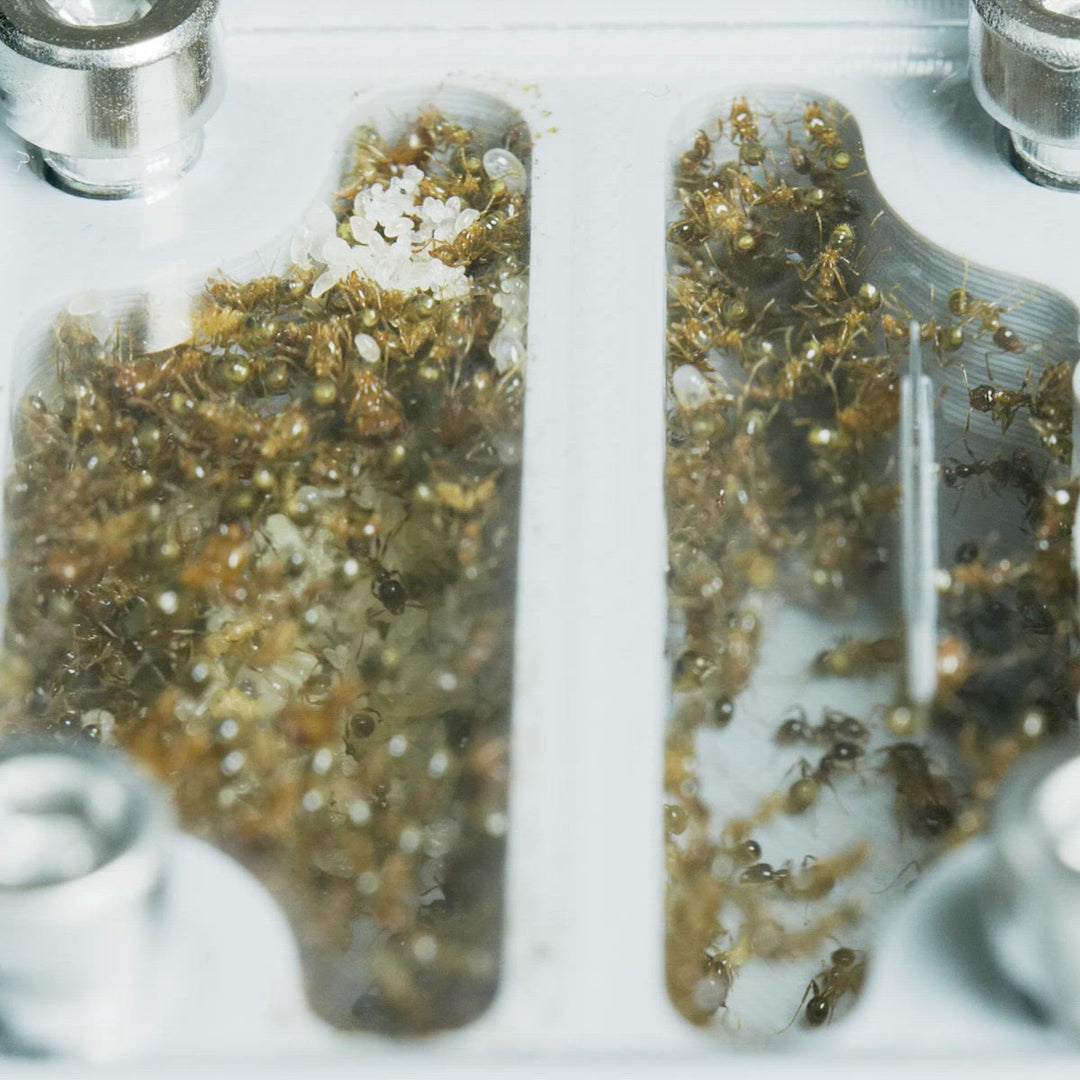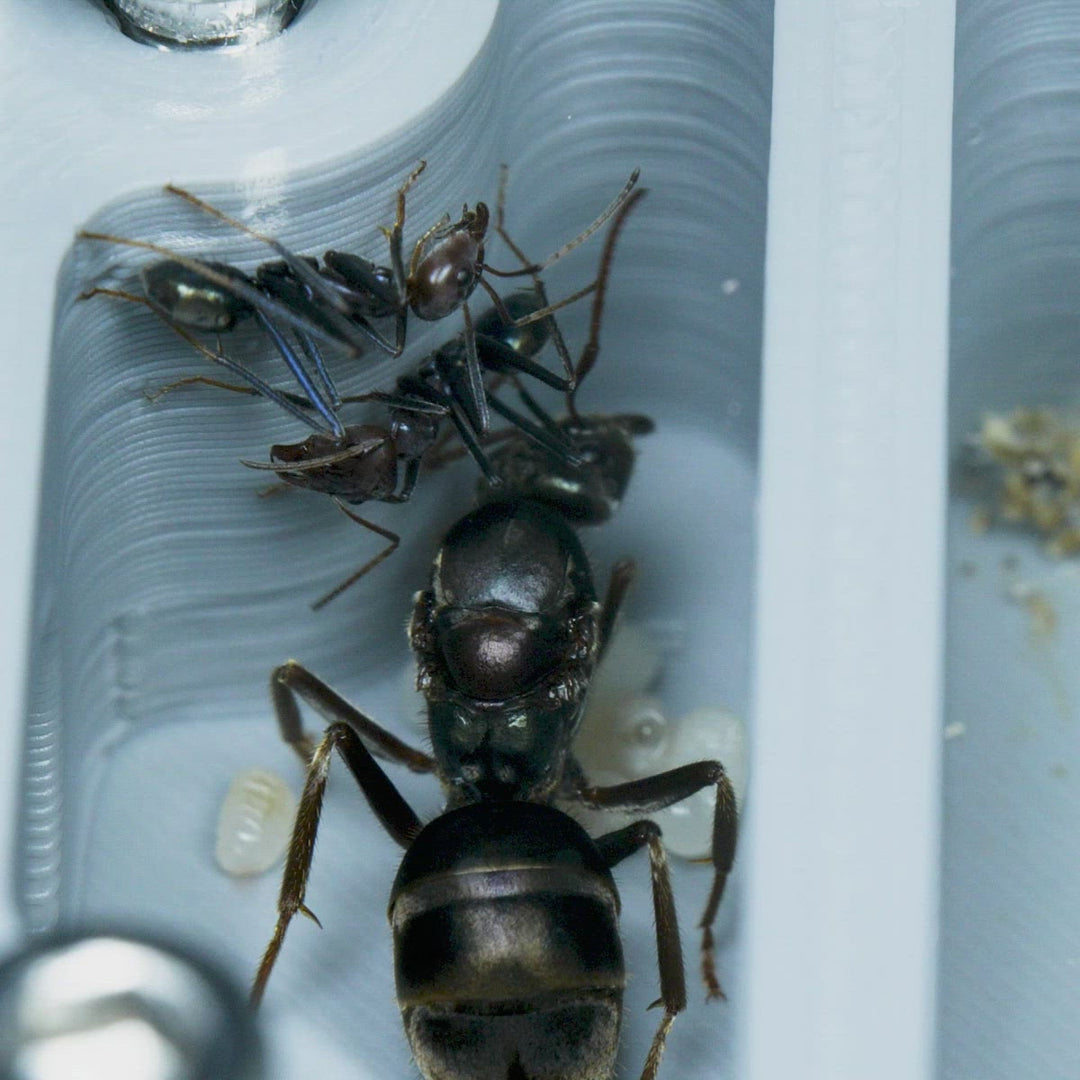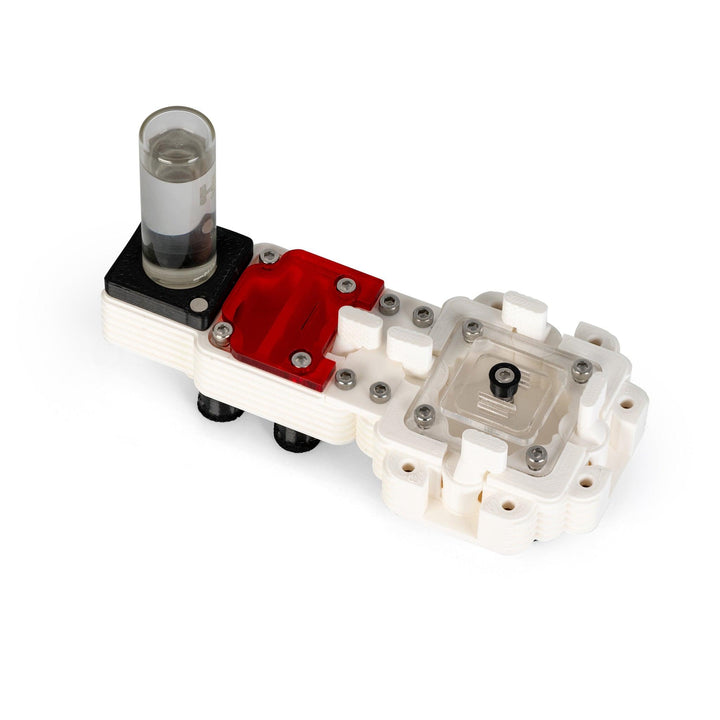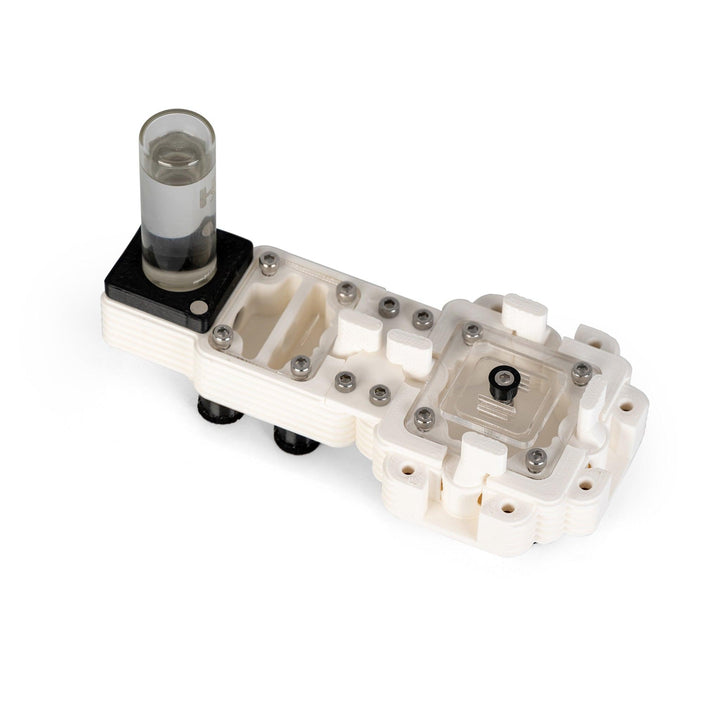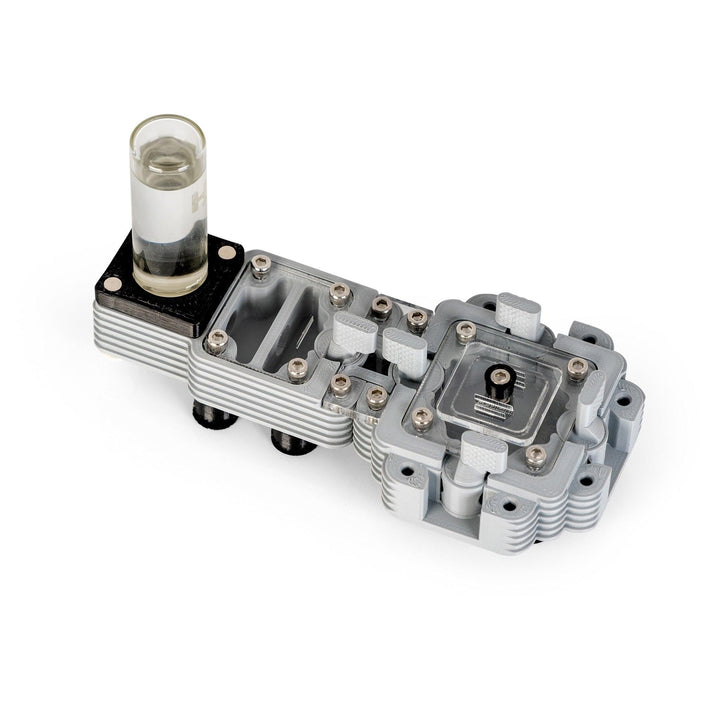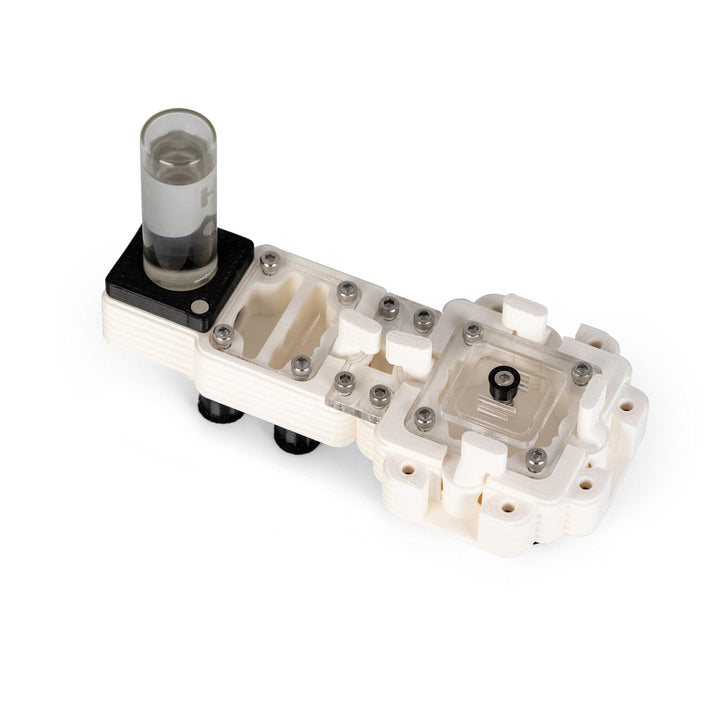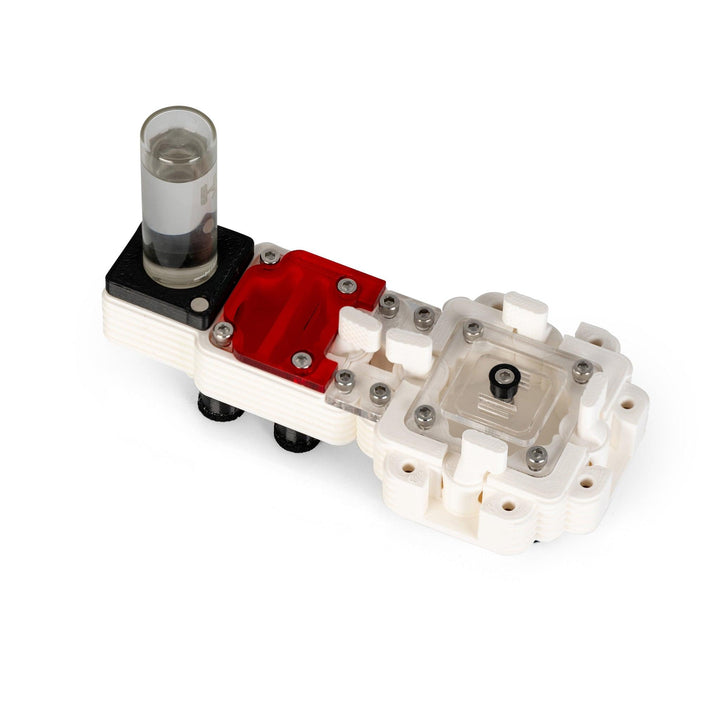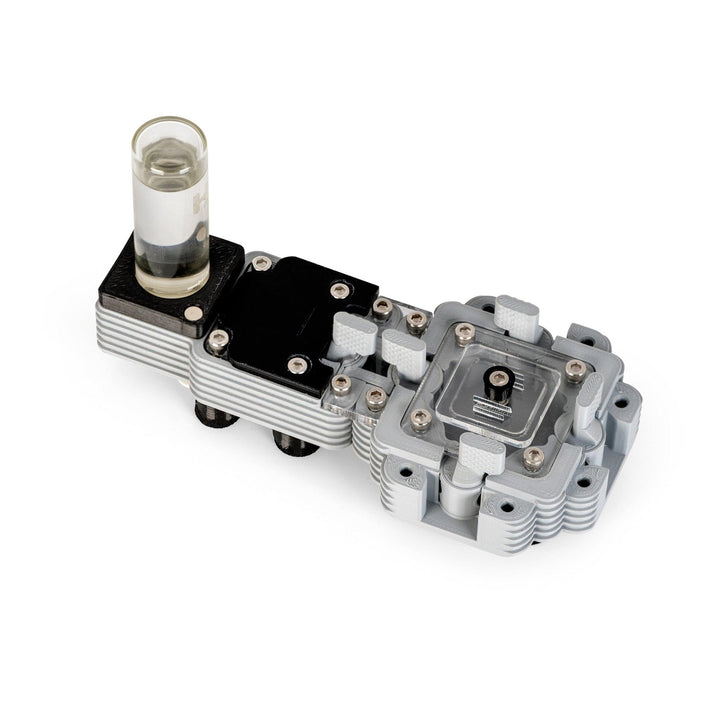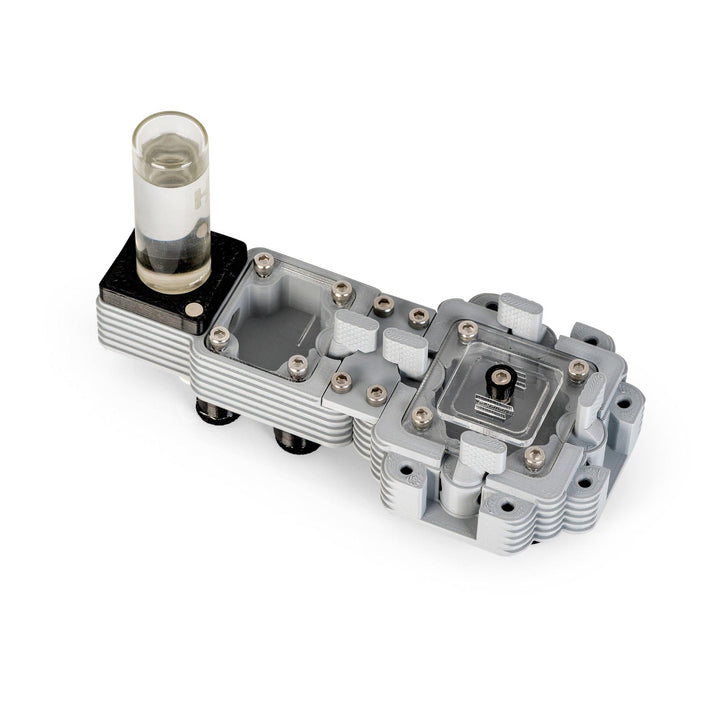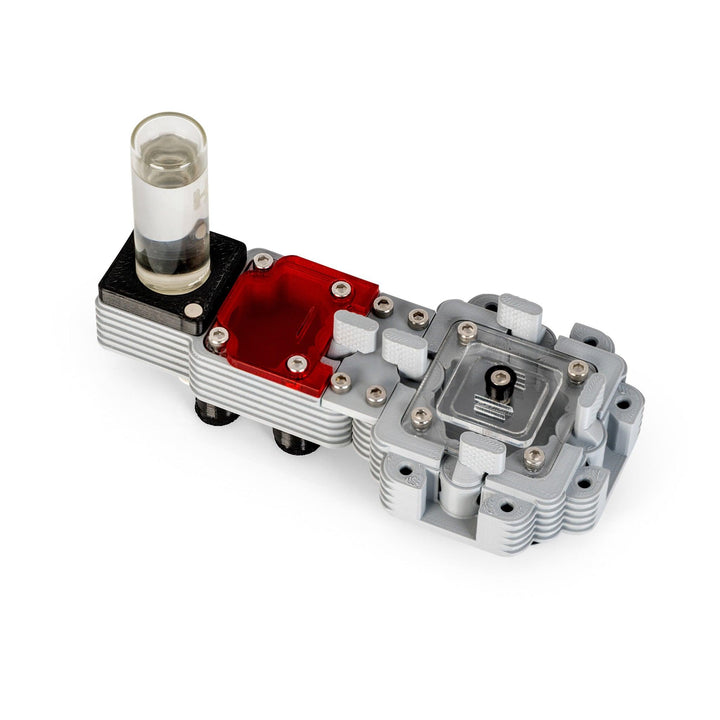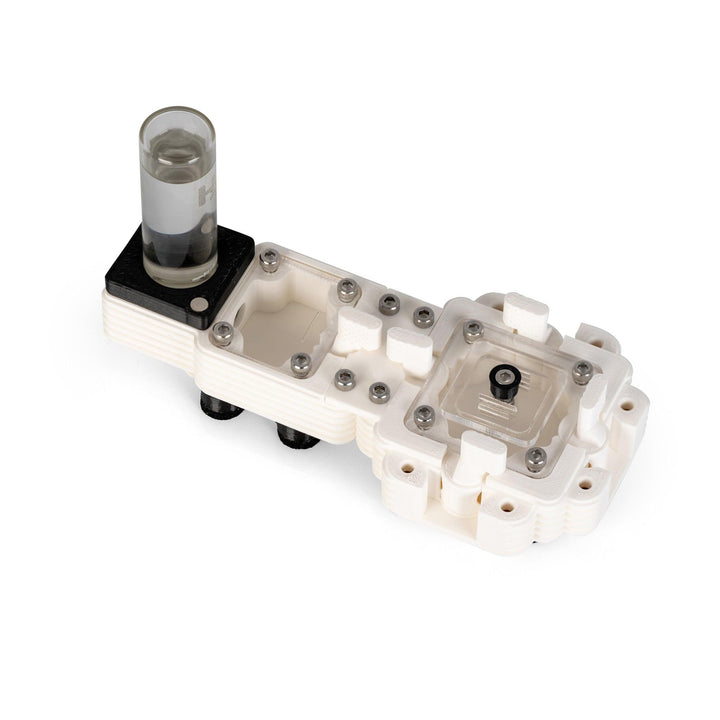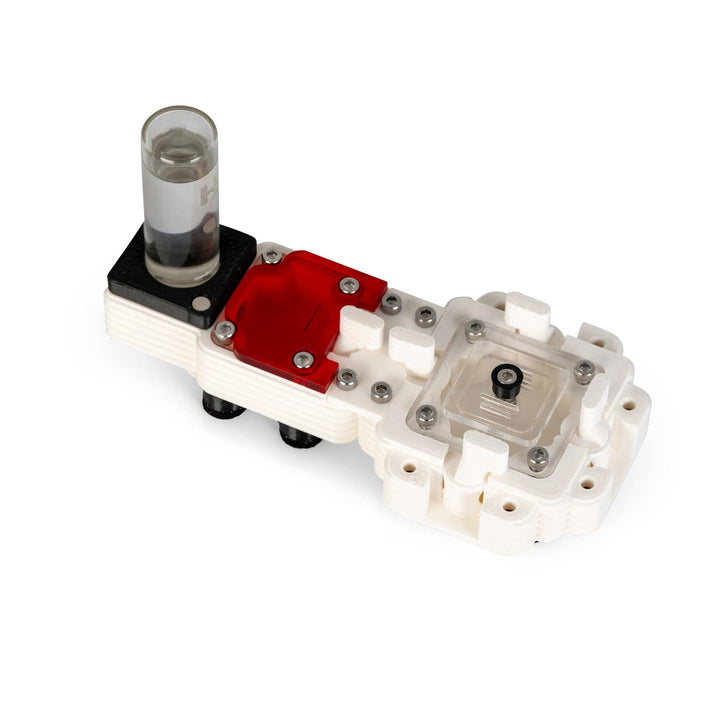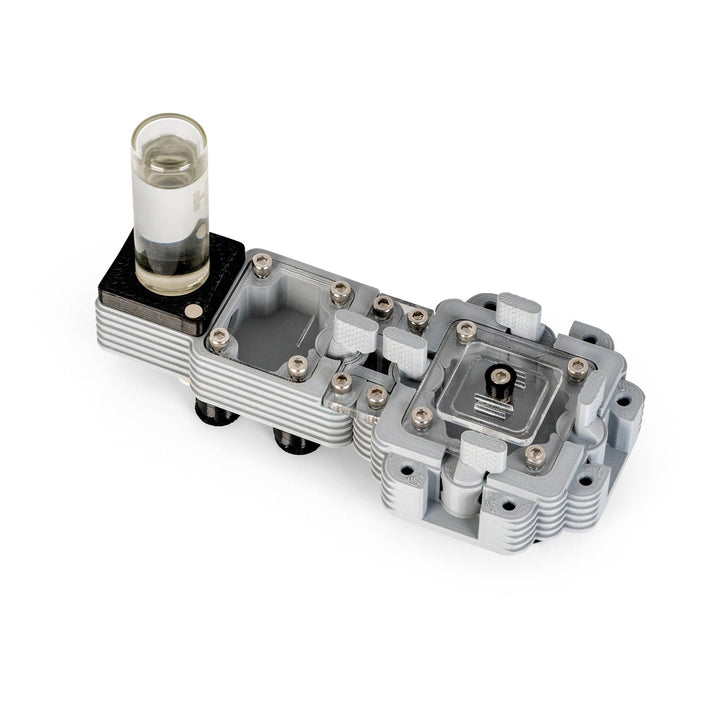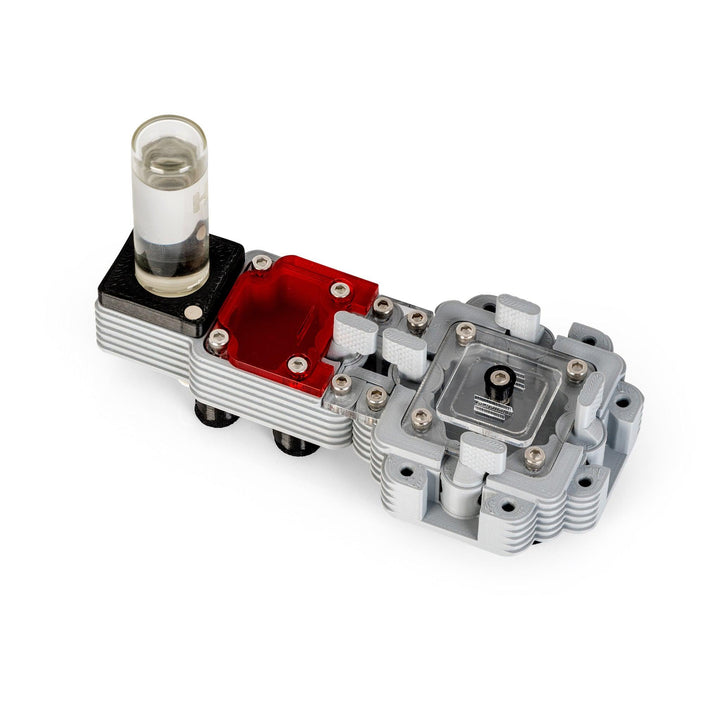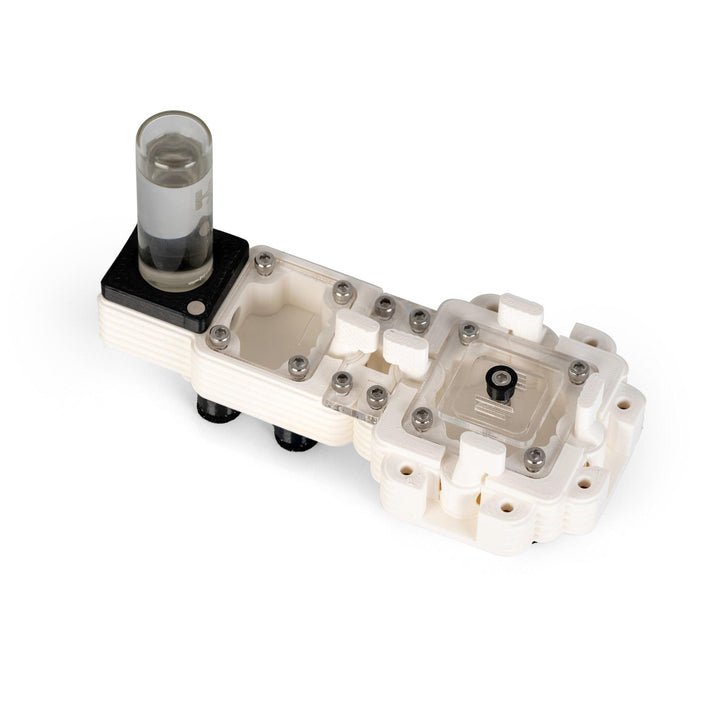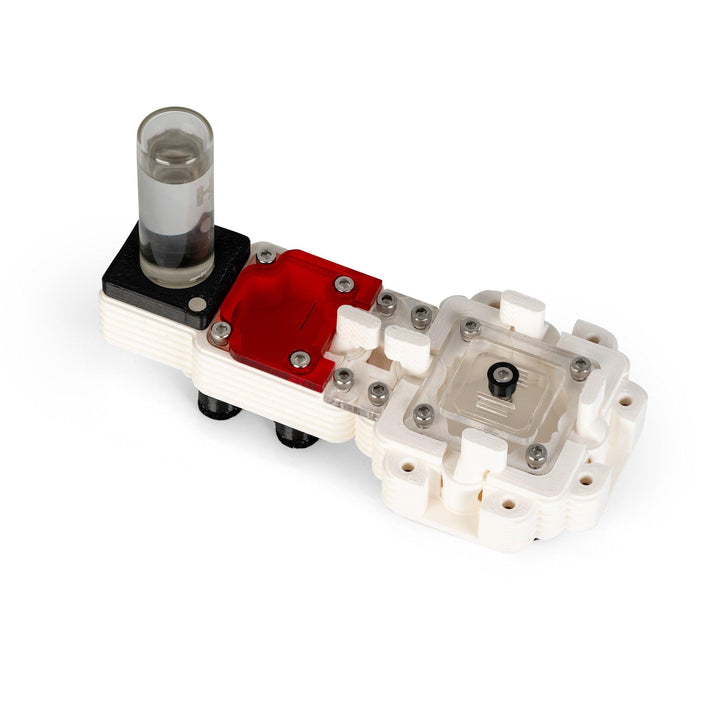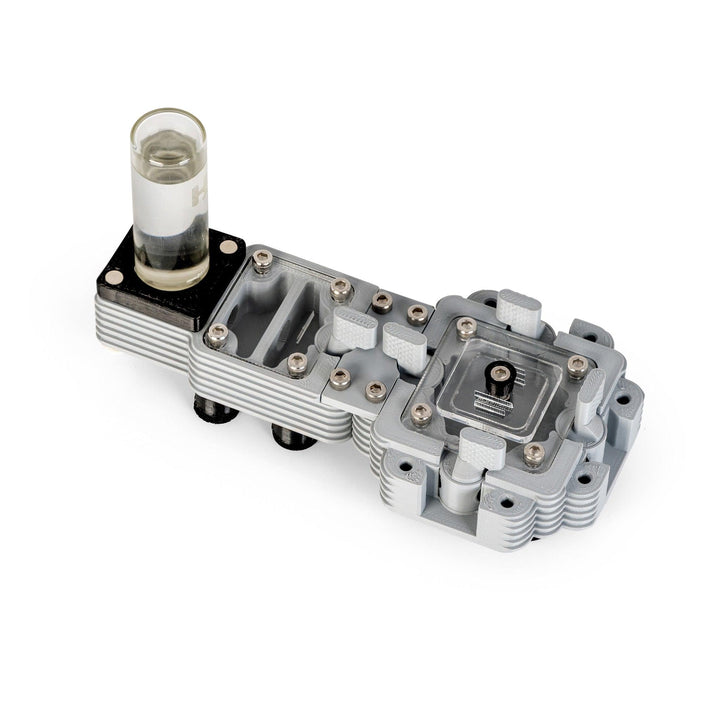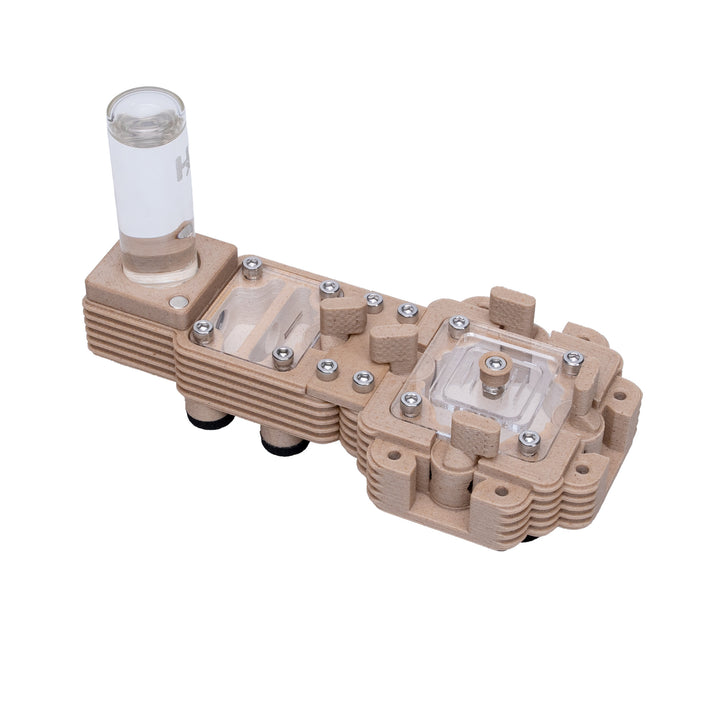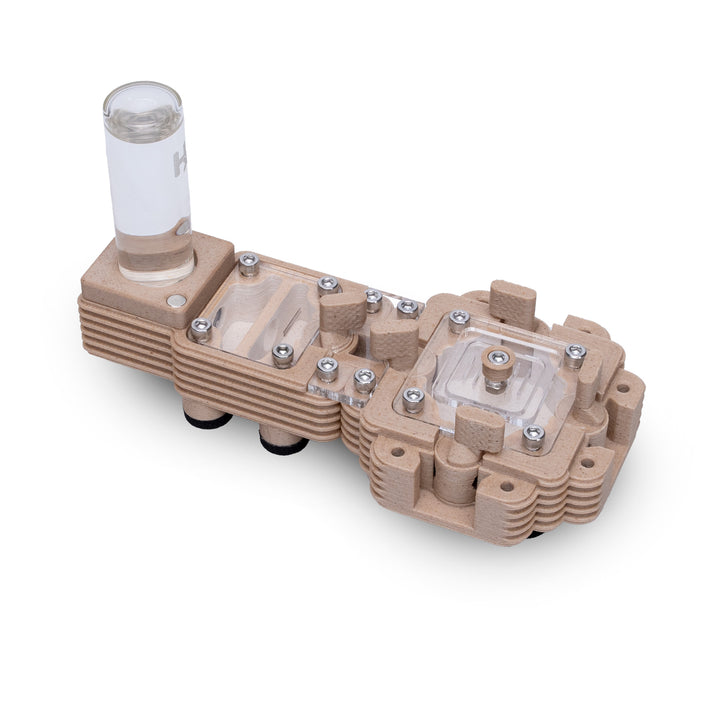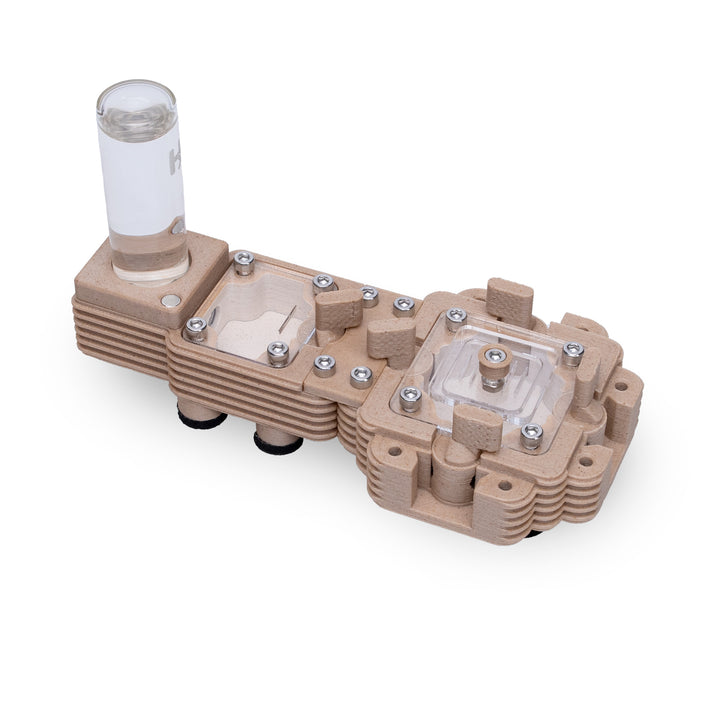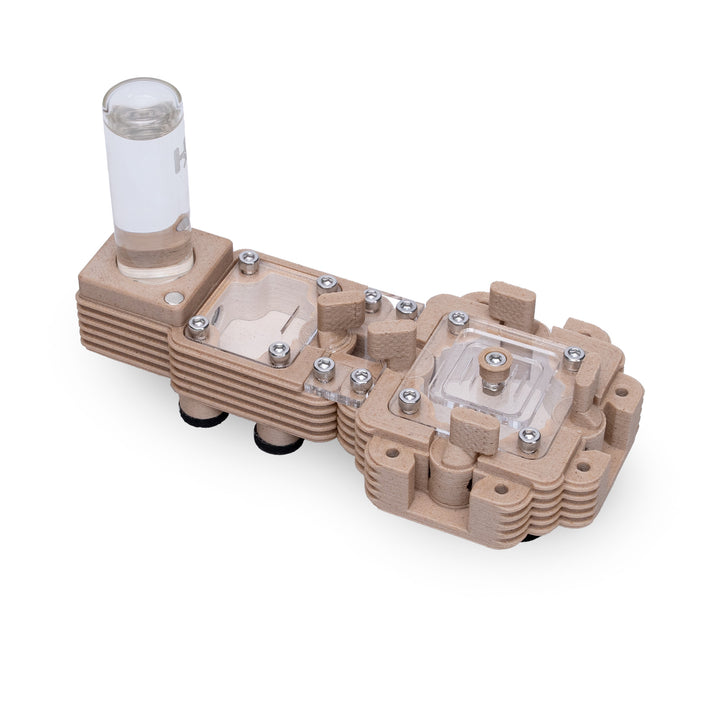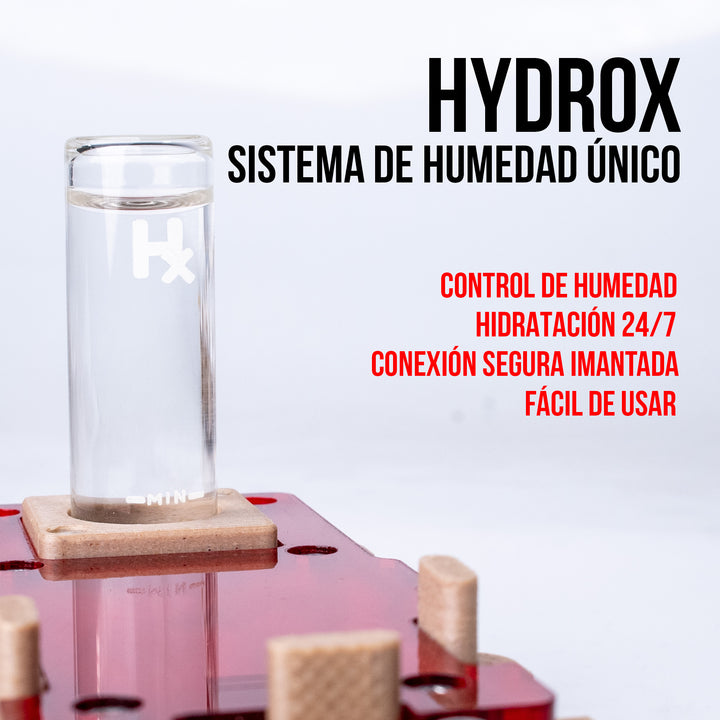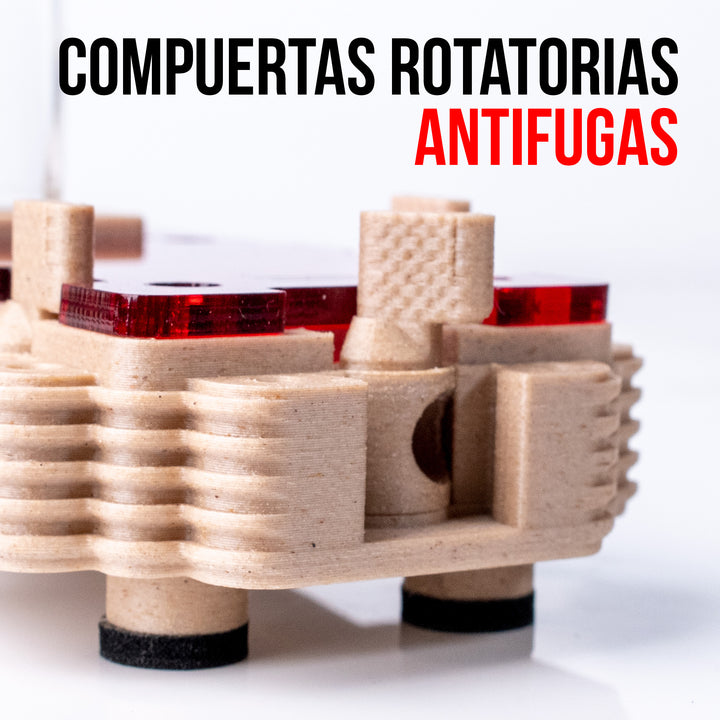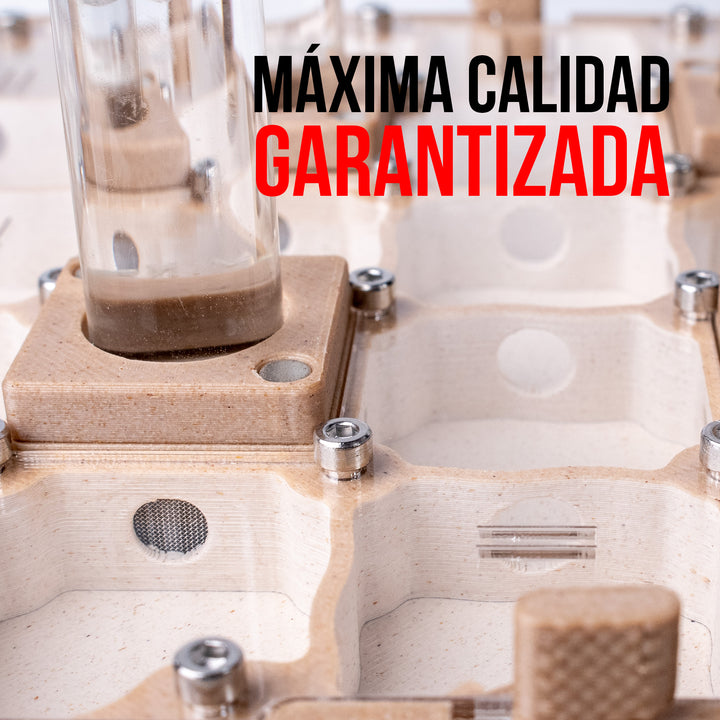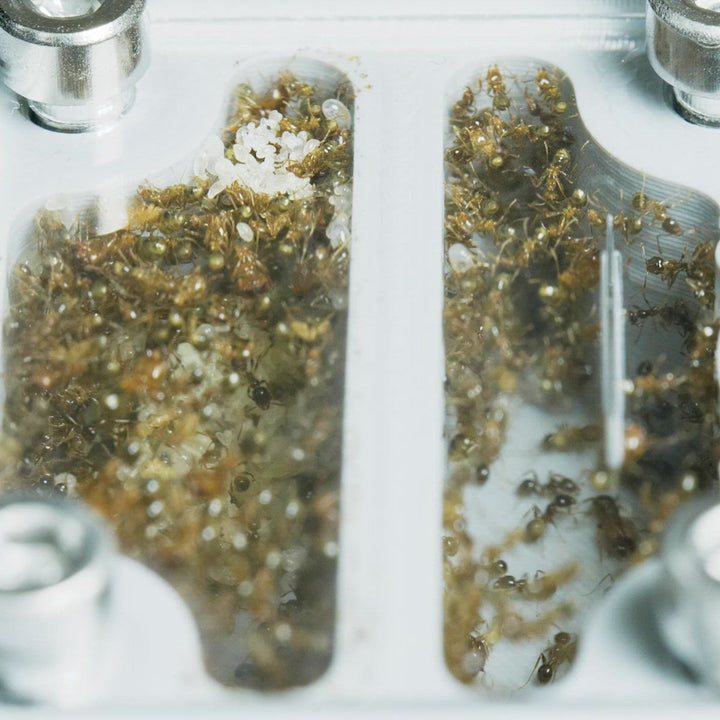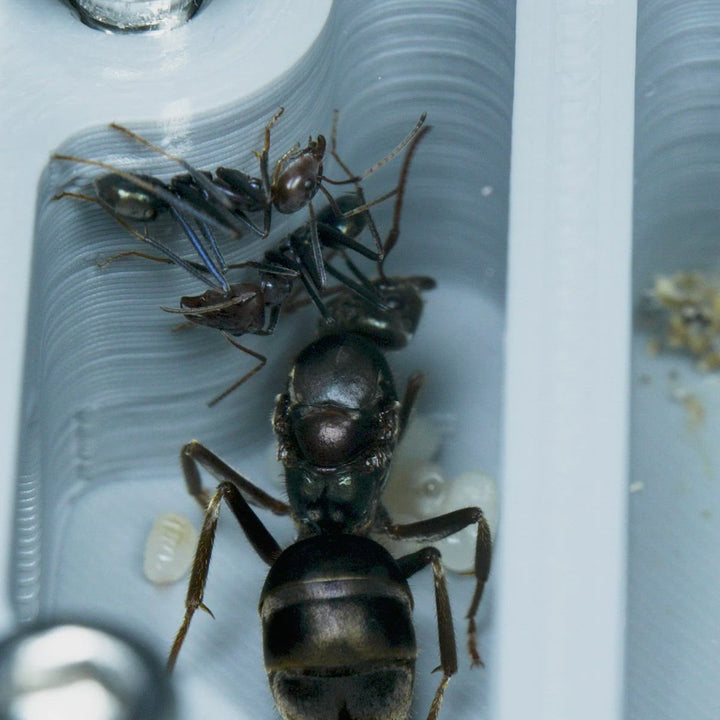Camponotus barbaricus — Fascinating & Hardy
Camponotus barbaricus is one of the most impressive choices for anyone seeking a large, striking ant colony. With a simple diet and interesting behavioral habits, this species suits both beginners and hobbyists looking for a robust, easy-to-care-for colony. Individuals can reach sizes of up to 16 mm, making for a visually captivating experience—especially in well-established colonies.
Each colony has been carefully raised from the queen and checked to ensure fertility, and is free of parasites and mites. It’s an excellent option for those who want to closely observe the organization of a large ant colony.
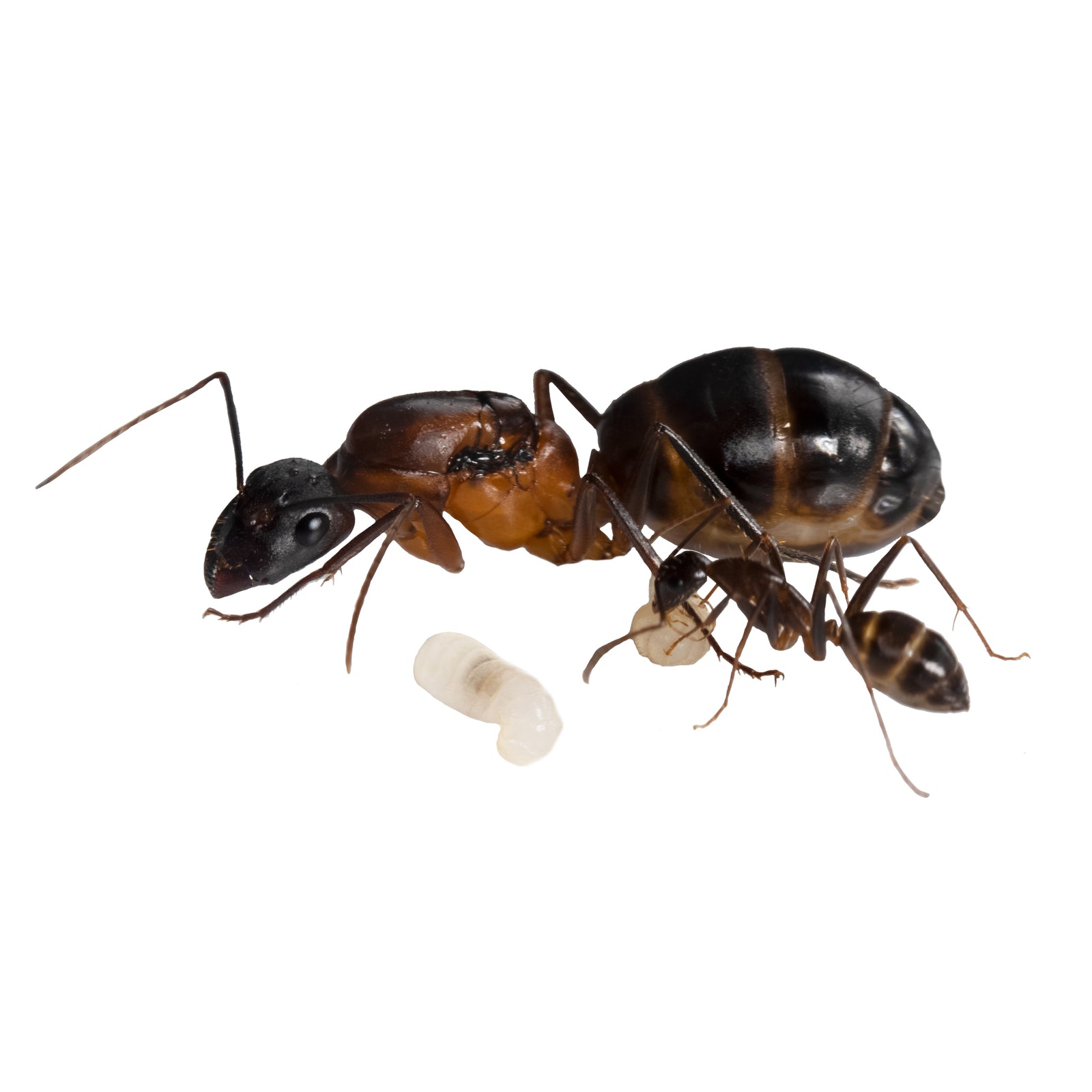
Características principales
Especie de Gran Tamaño: Con obreras que alcanzan tamaños notables, Camponotus barbaricus ofrece una experiencia única para observar de cerca la organización social de una colonia de hormigas grandes.
Fácil de Cuidar: Esta especie es resistente y se adapta bien a hormigueros de diferentes tamaños y tipos, con un mantenimiento simple y un bajo riesgo de plagas de parásitos.
Comportamiento Fascinante: Las Camponotus barbaricus muestran comportamientos organizados, como el cuidado de la cría y la construcción de galerías, y son fáciles de observar debido a su tamaño.
Colonia Libre de Parásitos y en Perfecto Estado: Cada colonia es inspeccionada para asegurar su salud antes del envío, lo que garantiza que las hormigas lleguen en condiciones óptimas.
Benefits for the Keeper
Hardy, Easy-to-Care-For Colony
Camponotus barbaricus adapts to different environments and is easy to keep—ideal for beginners and hobbyists.
Large, Easy-to-Observe Ants
With their size and organized behavior, these ants are excellent for observation—perfect for enthusiasts and educational studies alike.
Educational & Fascinating Experience
Raising Camponotus barbaricus allows both beginners and experienced keepers to enjoy the fascinating world of myrmecology.
Care Instructions
Diet: Feed a mixed diet of proteins and carbohydrates. Offer sugary foods like sugar water or ByFormica’s Sunburst Nectar, along with small insects for healthy development.
Habitat: A nest with spacious chambers is ideal for this large species. Provide slightly humid nesting areas and keep the foraging area drier.
Temperature & Humidity: Keep Camponotus barbaricus at 20–26 °C. Aim for 40–60% humidity inside the nest; the outside area can be drier.
Hibernation: This species needs a winter hibernation. Lower the temperature to around 15 °C and reduce feeding. Hibernation should last about 2–3 months for healthy colony development.
Warranty in Every Dimension
Live Colony Guarantee
We guarantee delivery of a healthy colony. If there’s any issue with the colony upon arrival, we’ll provide a replacement.
FERTILITY GUARANTEE
We care for each colony from the moment the queens raise their first brood, ensuring every colony is led by a fertile queen prepared for steady colony growth.
Mite- and Parasite-Free Colony
Each colony is inspected regularly and before every shipment to ensure it is free of mites and parasites. This guarantees the ants arrive in optimal condition, with no risk of infestation.
Physical Integrity Guarantee
We meticulously inspect every colony to ensure the queen is in perfect condition—no missing or damaged antennae, legs, or body parts. We make sure bodies are complete, delivering ants in the best possible condition.
Support Guarantee
To help you care for your Camponotus barbaricus, we provide post-purchase support with tips, guides, and answers to your questions. We’re committed to ensuring you have a positive, successful experience raising your ants.
Frequently Asked Questions
Primarily a diet that includes sugars and proteins—such as sugar water or Sunburst nectar—plus live food.
An ant nest with spacious galleries—to allow large ants to move freely and to place brood—is ideal.
Yes—during winter, lower the temperature to around 15 °C and reduce feeding for a 2–3 month hibernation period.
Every colony we ship is free of mites and parasites—we carefully inspect them before dispatch. However, if you ever find mites in the future, it’s important to isolate the colony and consult on cleaning methods or specific products. Contact us for assistance in these cases.
No, Camponotus barbaricus is a territorial species and does not tolerate other colonies in the same space.
We ship every colony inspected and free of parasites. However, if an infestation occurs, contact us and we’ll help with solutions.
The need for a larger nest arises when the current one starts to run out of space—often noticeable through unusual foraging behavior. As the colony grows, it becomes clear the ants need more room for brood and new workers. Thanks to our modular system, you don’t need to move them to a new nest—you can expand without limits.
Sí, es completamente normal que algunas hormigas pasen períodos de inactividad. Las Camponotus barbaricus tienen diferentes castas, y cada una cumple un rol específico en el hormiguero. Algunas pueden estar en "modo reposo", especialmente en ausencia de tareas urgentes.

